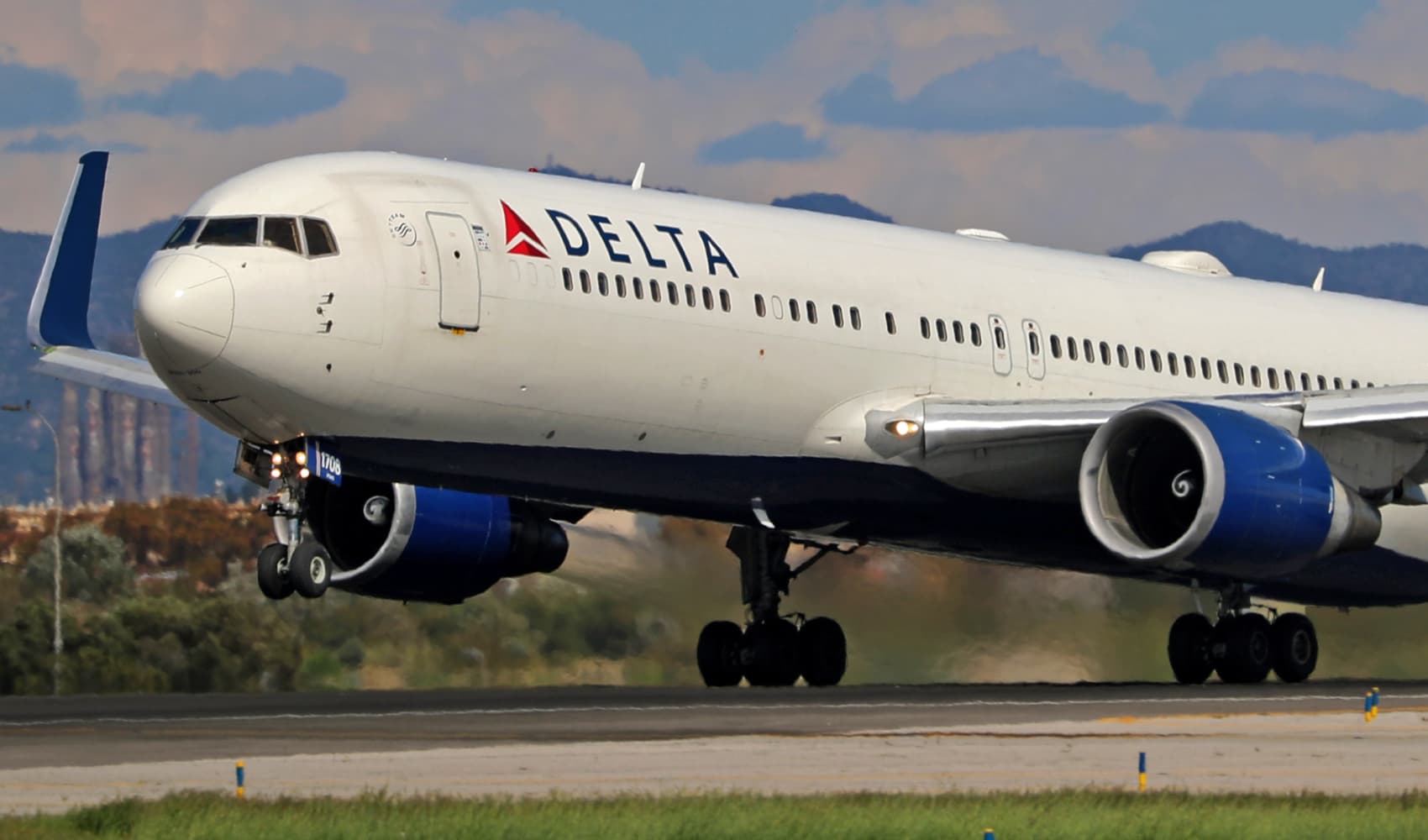
This was CNBC's live blog tracking developments on the war in Ukraine. See here for the latest updates.
The war shows no signs of slowing down with heavy missile attacks continuing overnight in the south and east of the country.
The latest wave of strikes comes after three Russian airbases experienced attacks this week. Kyiv has not claimed responsibility for the attacks, some of which have been located hundreds of miles within Russia.
U.S. Secretary of State Antony Blinken said Tuesday that Washington has neither encouraged nor enabled the Ukrainians to strike inside of Russia but said the U.S. is determined to ensure Kyiv has the equipment it needs to defend itself.
Pro-Russian official Denis Pushilin, the acting head of the separatist "Donetsk People's Republic" in eastern Ukraine, told Russian state media Tuesday that Russian troops are in a position to advance in Donetsk, arguably the most hotly-contested region in the Ukraine war at the moment.
Fighting there has descended into bloody trench warfare with fierce battles over local settlements as Russian troops attempt to encircle and capture Bakhmut and Ukrainian forces try to hold them back.
Kyiv mayor says winter 'apocalypse' scenario is possible, but urges calm
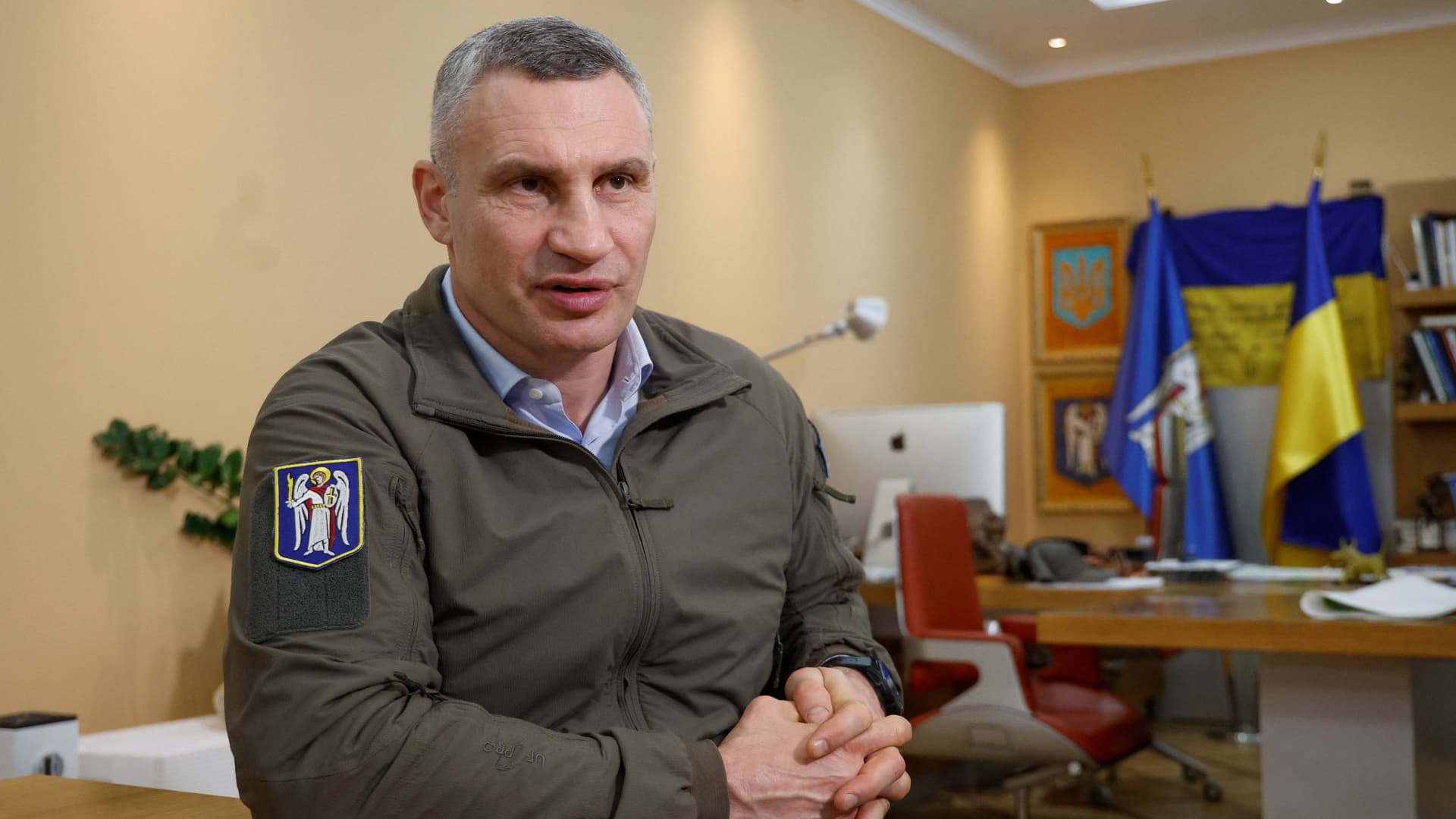
Kyiv's mayor on Wednesday warned of an "apocalypse" scenario for the Ukrainian capital this winter if Russian air strikes on infrastructure continue and said although there was no need for people to evacuate now, they should be ready to do so.
Get a weekly recap of the latest San Francisco Bay Area housing news. >Sign up for NBC Bay Area’s Housing Deconstructed newsletter.
Money Report
"Kyiv might lose power, water, and heat supply. The apocalypse might happen, like in Hollywood films, when it's not possible to live in homes considering the low temperature," Mayor Vitali Klitschko told Reuters in an interview.
"But we are fighting and doing everything we can to make sure that this does not happen," the former world heavyweight boxing champion said, raising his booming voice to drive the point home.
According to Klitschko, 152 civilian residents of Kyiv have been killed and 678 buildings destroyed since the beginning of Russia's invasion on Feb. 24, but the city faces fresh tribulations this winter as Russia regularly pounds Ukraine's power grid with missiles.
— Reuters
EU eyes Russian officials, banks, industry for sanctions
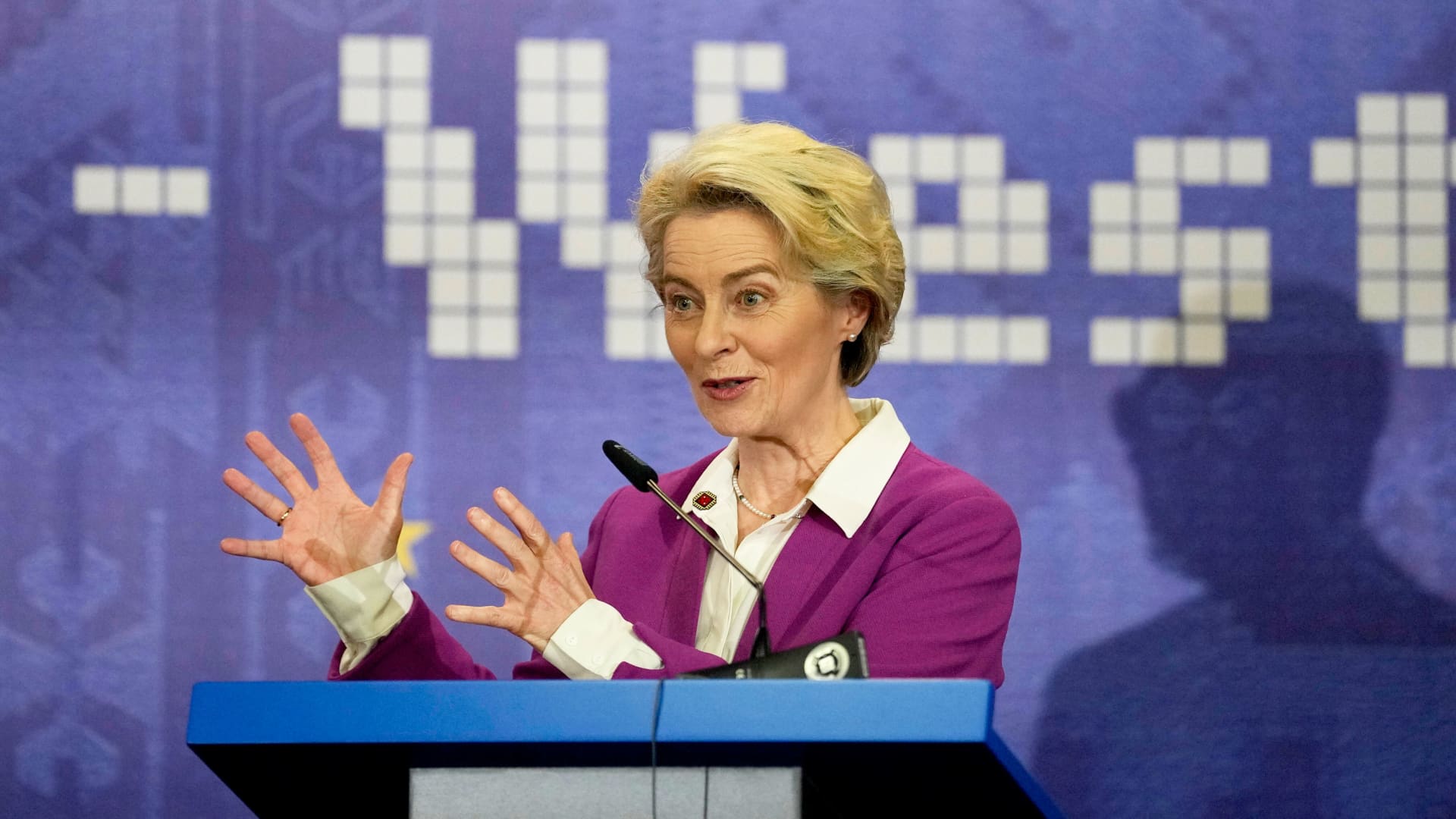
The European Union proposed travel bans and asset freezes on almost 200 more Russian officials and military officers as part of a new round of sanctions aimed at ramping up pressure on Moscow over its war in Ukraine.
The proposals were made by the EU's executive branch, the European Commission. They must still be debated and endorsed by the 27 member countries, a process that routinely results in the commission's suggestions getting watered down.
The targets of the latest recommended sanctions include government ministers, lawmakers, regional governors and political parties.
"This list covers key figures in Russia's brutal and deliberate missile strikes against civilians, in the kidnapping of Ukrainian children to Russia, and in the theft of Ukrainian agricultural products," European Commission President Ursula von der Leyen said in a statement.
With a fresh raft of sanctions, the commission also intends to target the Russian defense industry and more Russian banks, and to impose export controls and restrictions on products like chemicals, nerve agents, electronics and IT components that could be used by the armed forces.
— Associated Press
Photos show collected remnants of shells and missiles used by the Russian army in Kharkiv
Experts from the Ukrainian prosecutor's office examine collected remnants of shells and missiles used by the Russian army to attack the second largest Ukrainian city of Kharkiv during the Russian invasion of Ukraine.
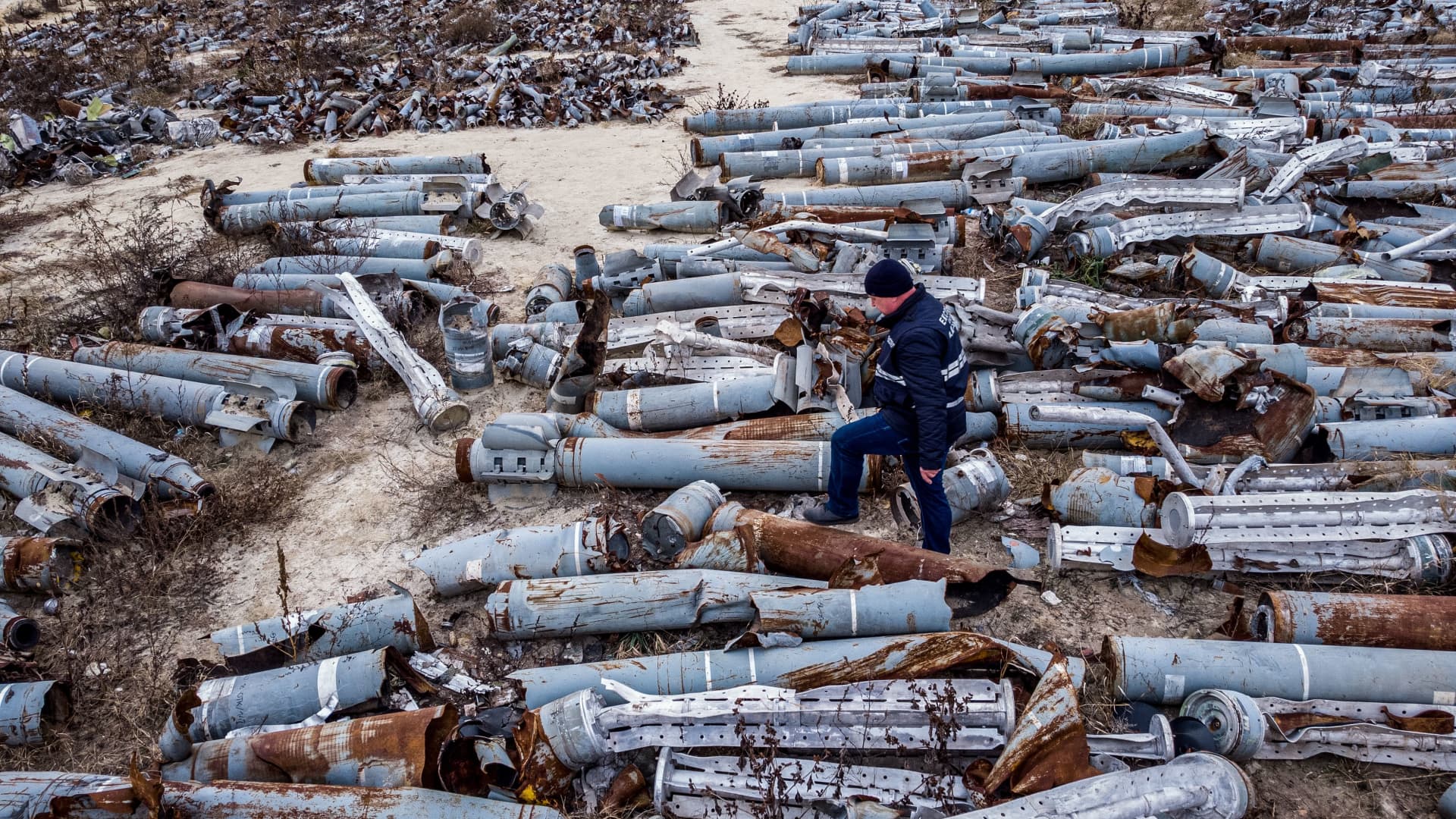
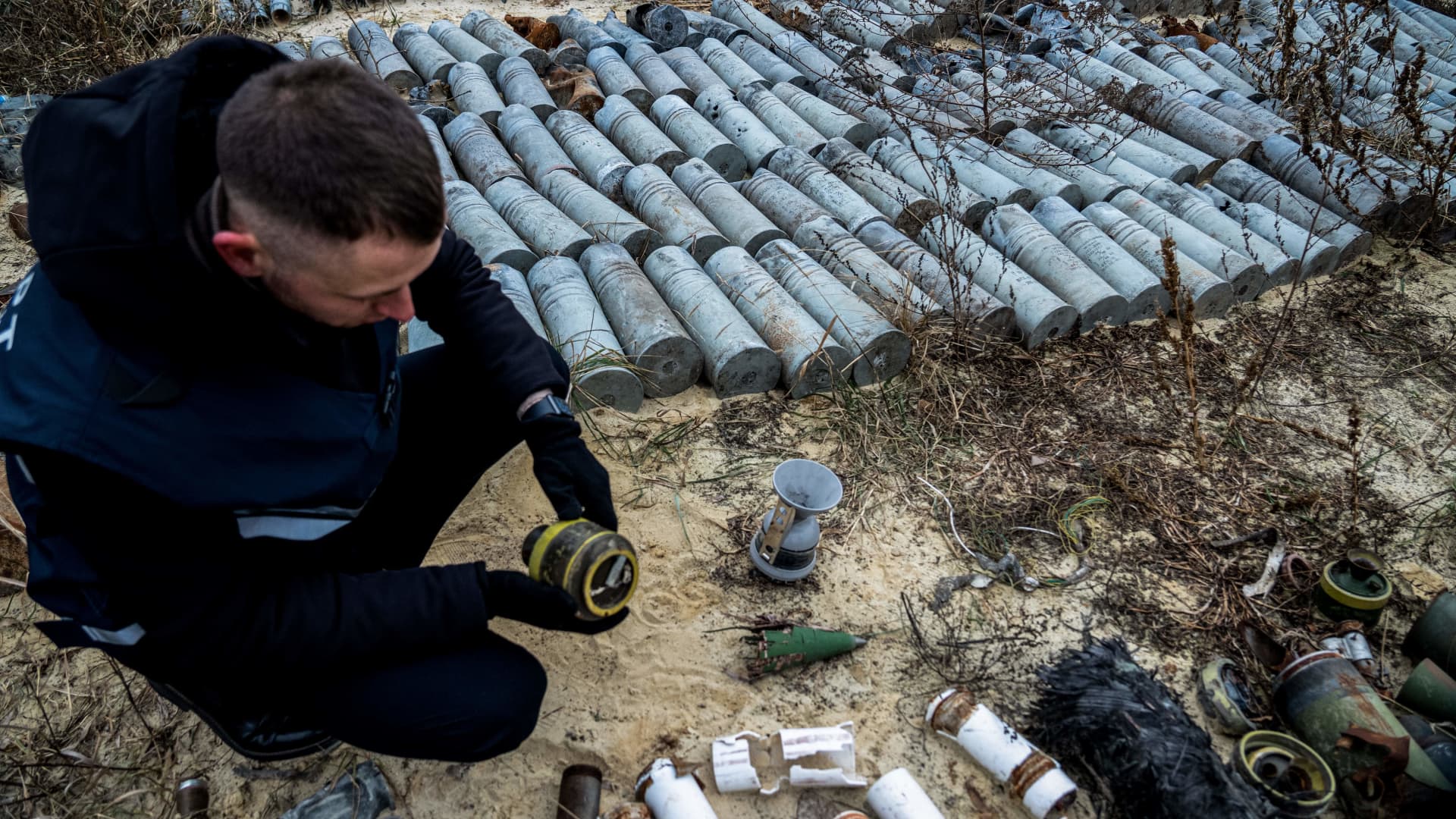
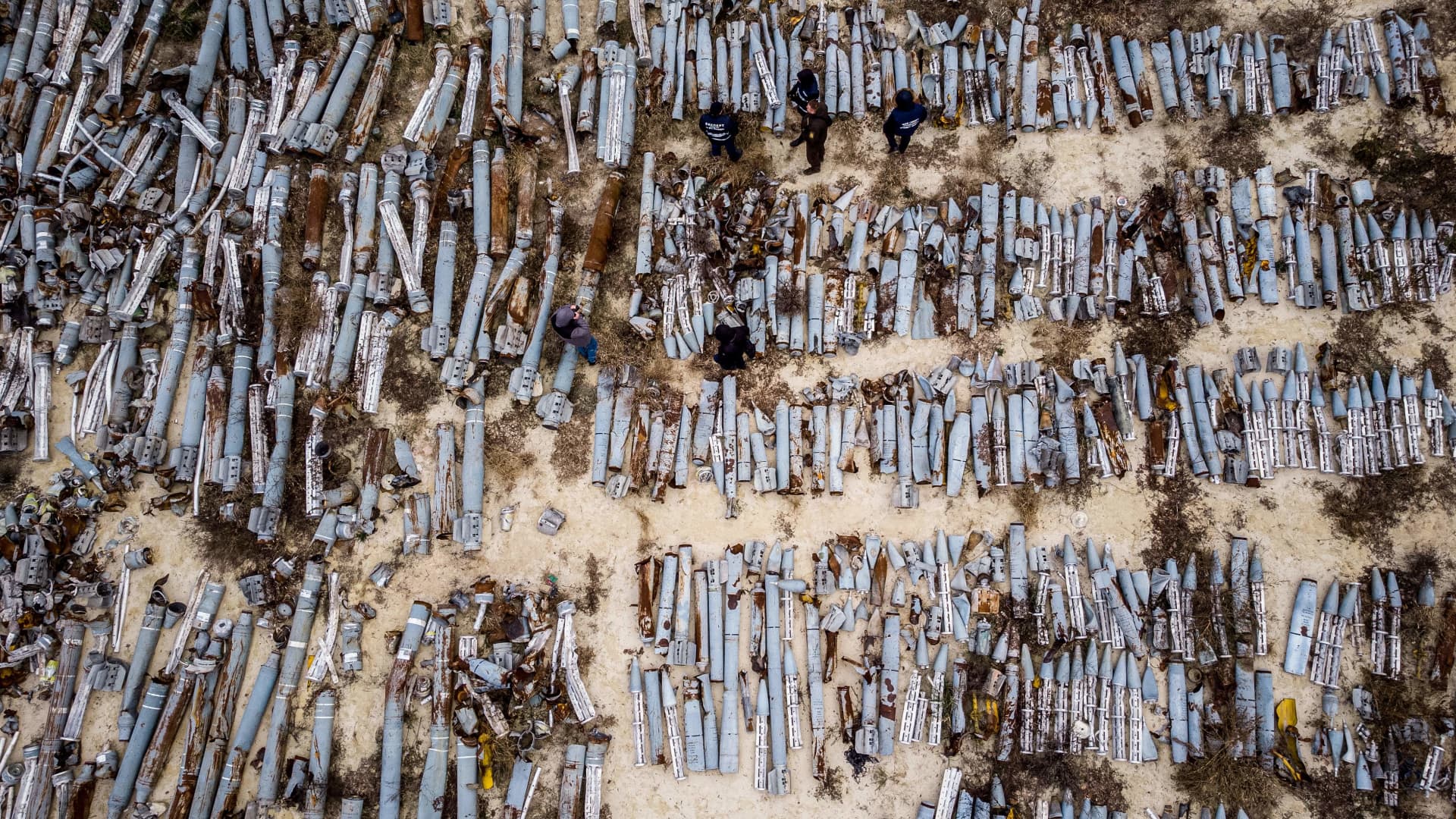
— Aleksey Filippov | AFP | Getty Images
Russia's central bank says its economy has overcome short-term slump caused by mobilization
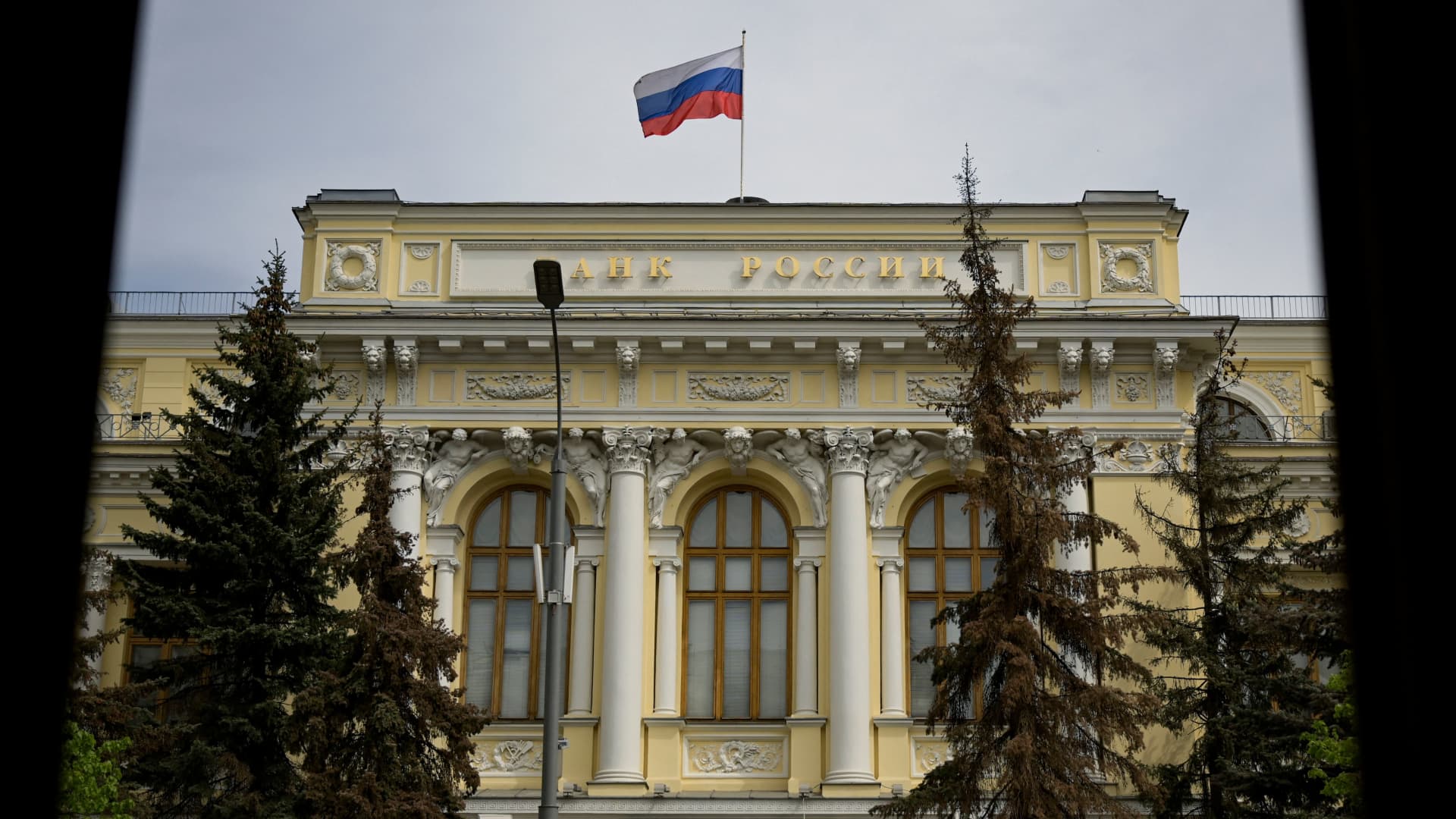
This content was produced in Russia where the law restricts coverage of Russian military operations in Ukraine.
Russia's central bank said the nation's economy has overcome the short-term slump caused by President Vladimir Putin's partial mobilization order, but the disinflationary impact it had in reducing consumer demand has practically disappeared.
Inflationary risks are set to prevail in the medium term, the bank said in an analytical report on macroeconomic and market trends, pointing to increases in budget spending and private lending.
— Associated Press
Ukrainians brace for a long winter ahead
Kyiv residents brace for a cold, dark winter as Russia continues its missile strikes that have caused widespread power outages across the country.
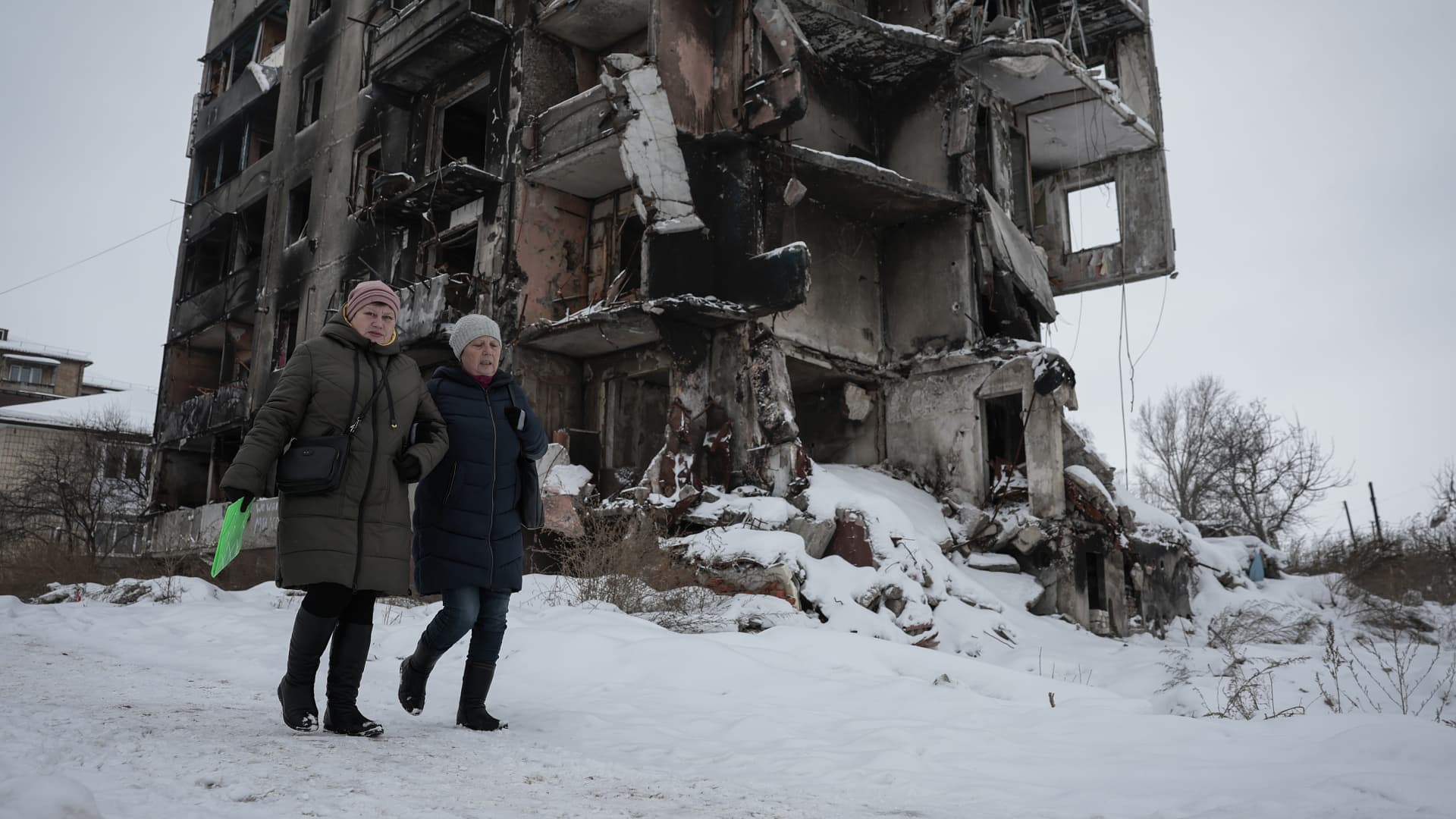
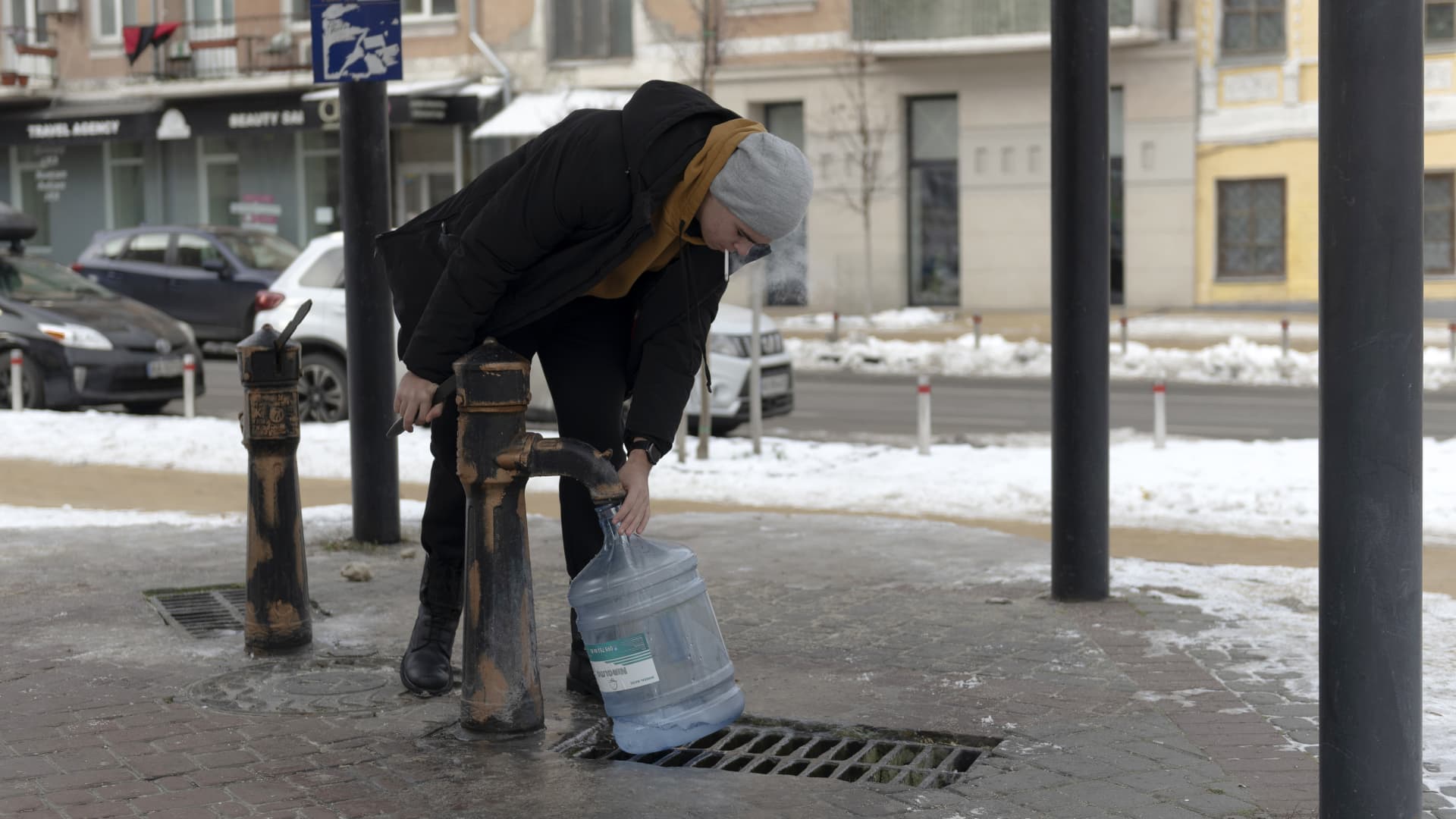
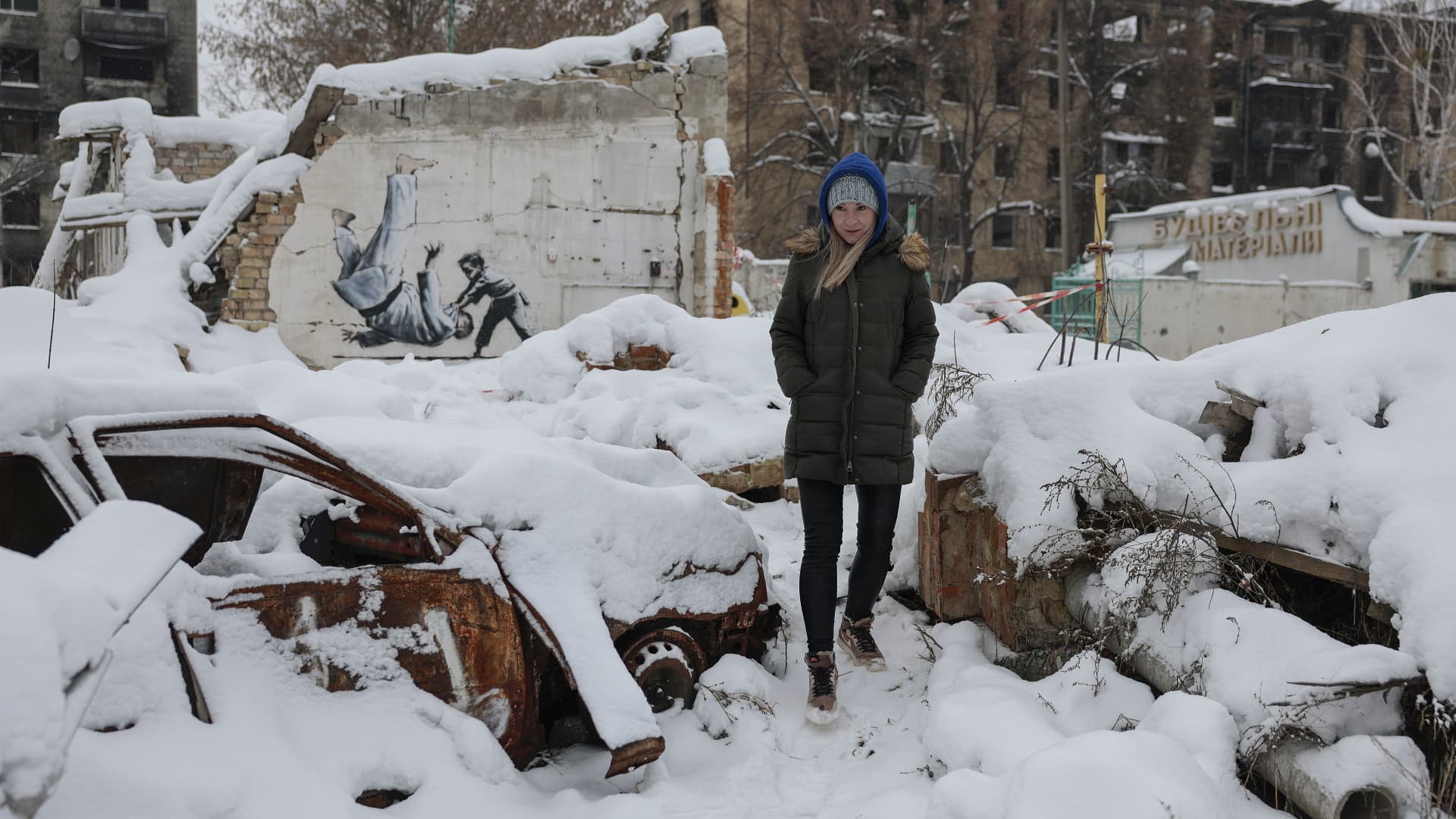
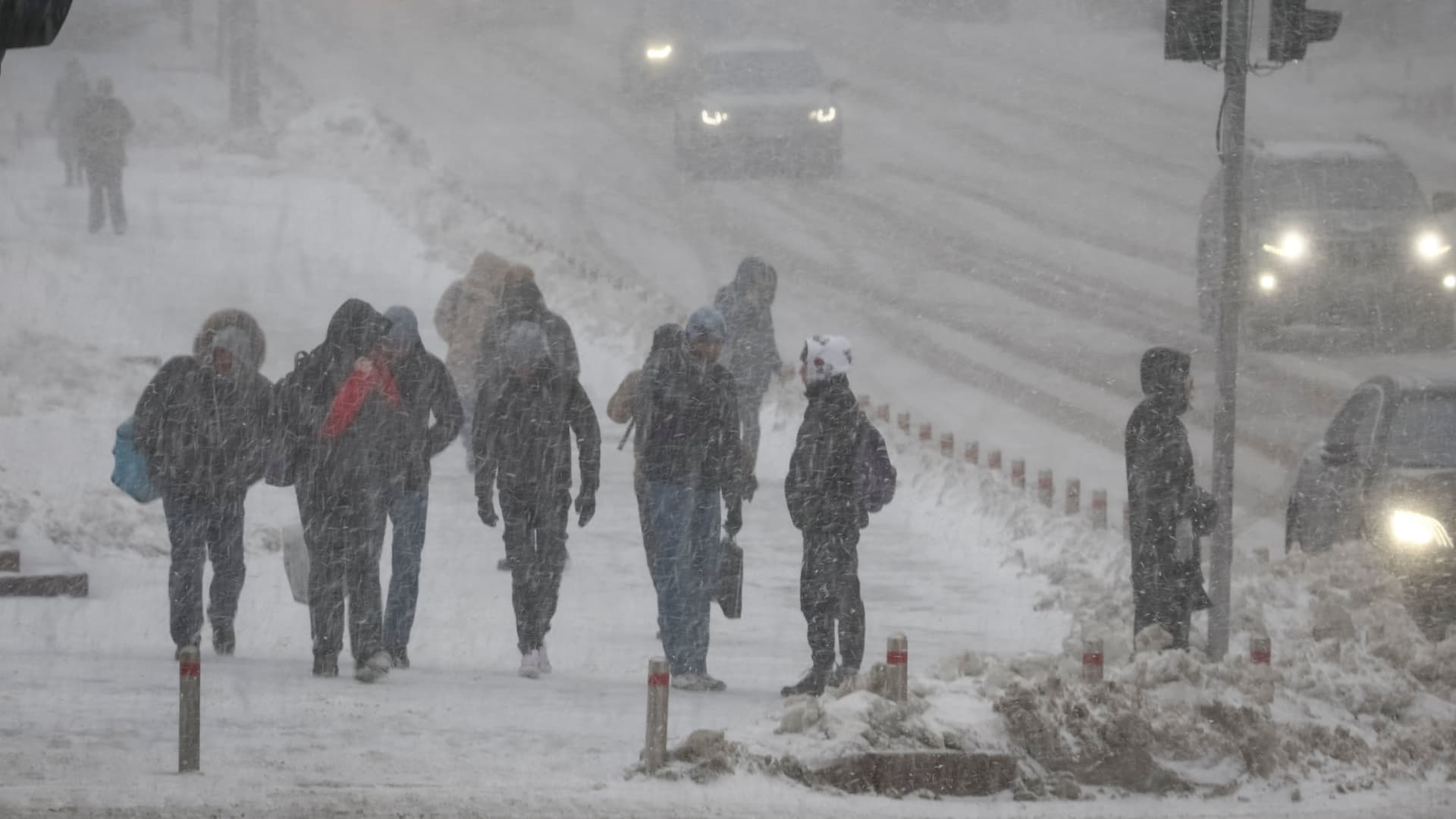
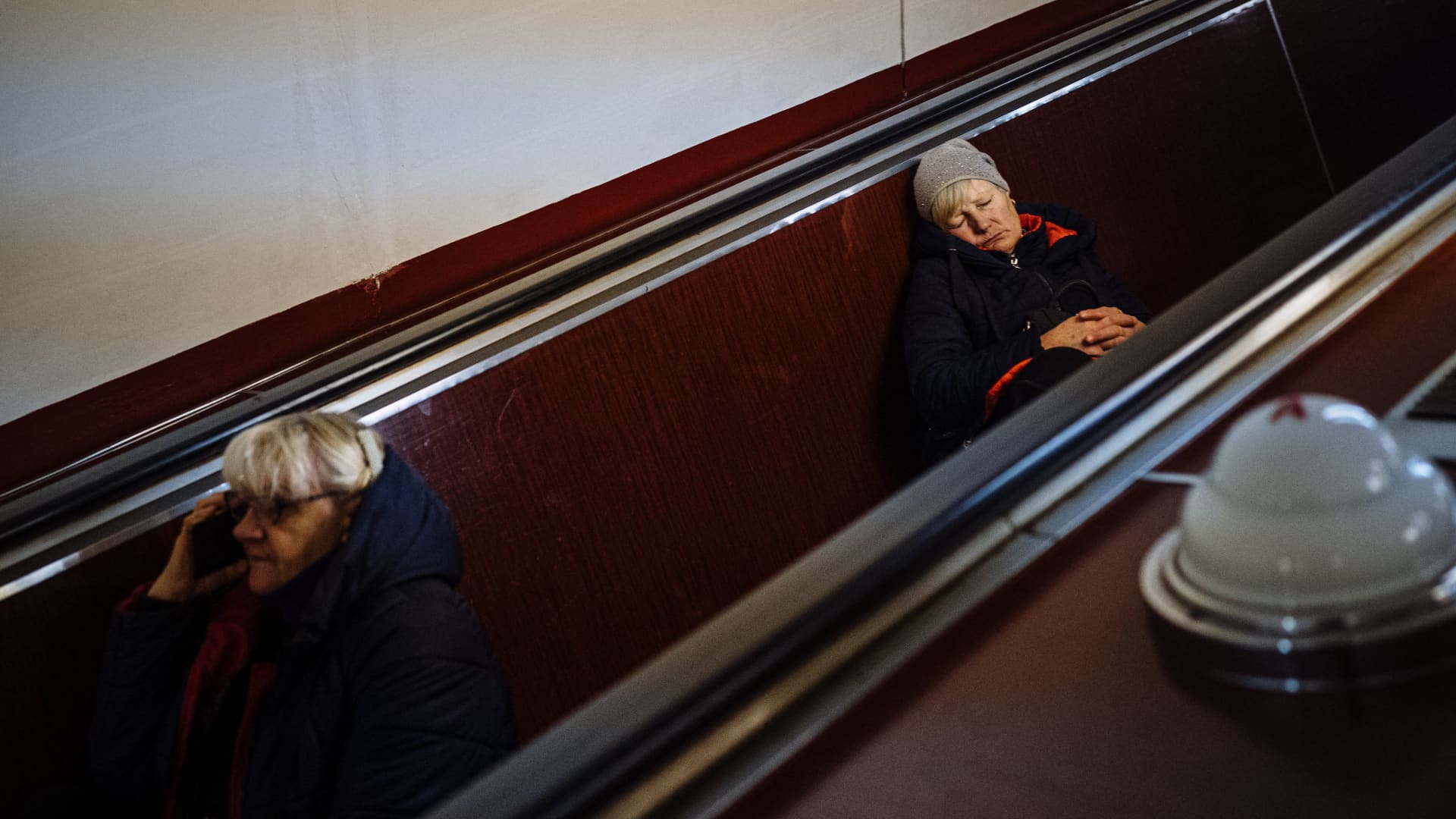
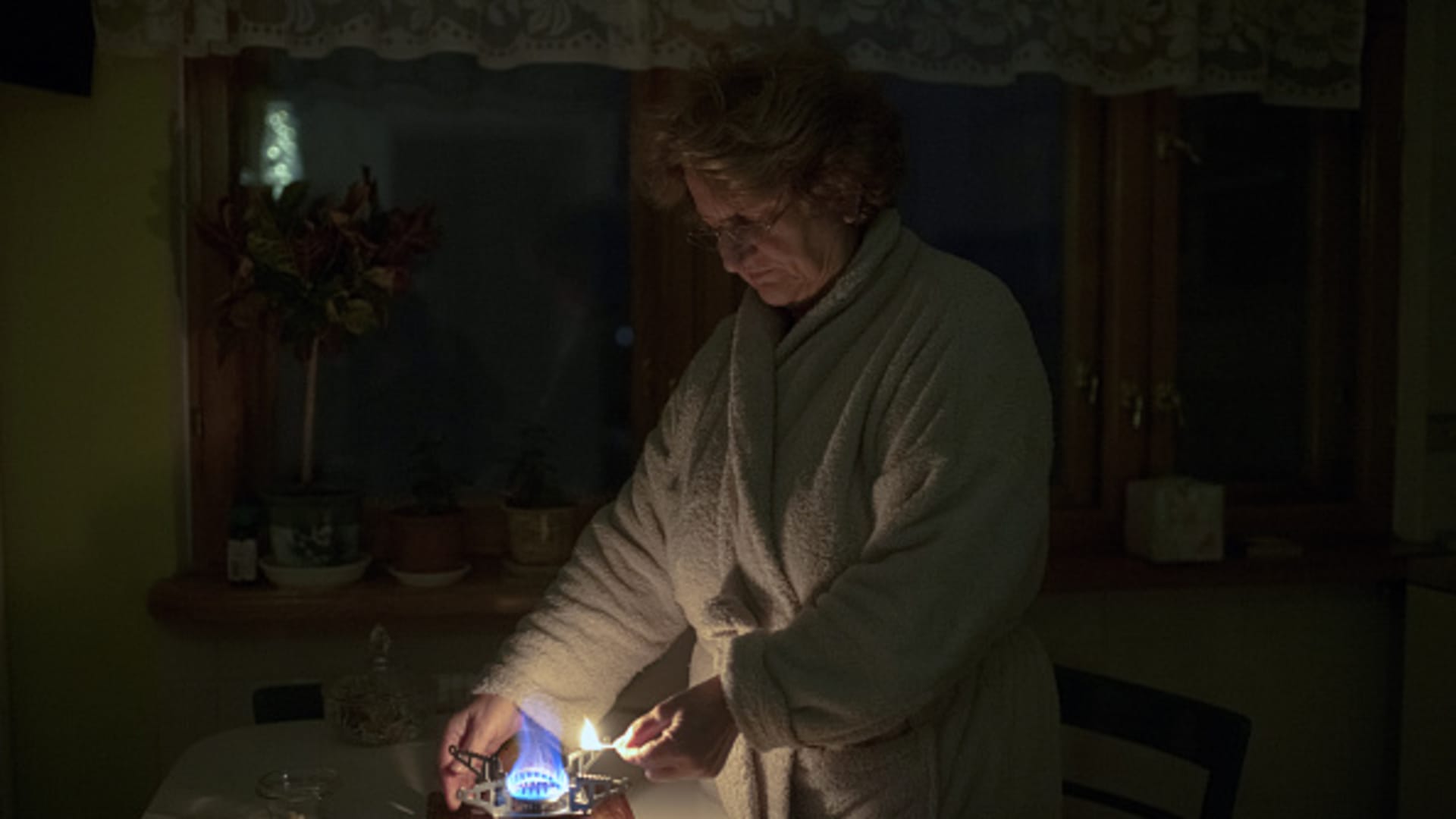
— Getty Images
Zelenskyy and 'spirit of Ukraine' named Time person of year
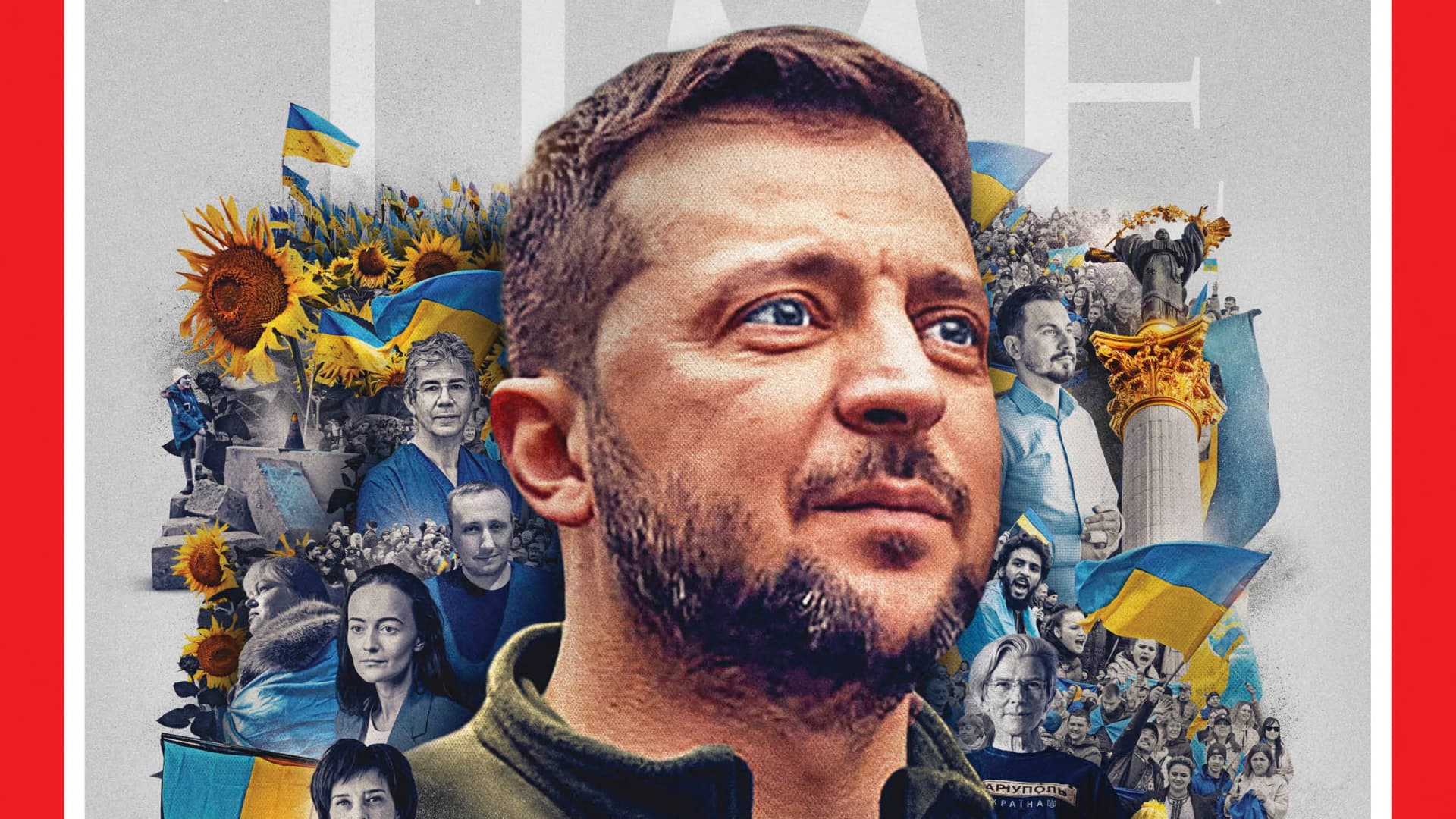
Time Magazine named Ukrainian President Volodymyr Zelenskyy its person of the year, awarding him the accolade "for proving that courage can be as contagious as fear."
Editor-in-chief Edward Felsenthal said the choice of Zelenskyy — alongside "the spirit of Ukraine" — was "the most clear-cut in memory."
"Whether the battle for Ukraine fills one with hope or with fear, the world marched to Volodymyr Zelensky's beat in 2022," he said.
A comedian-turned-politician who was elected to lead Ukraine in 2019, Zelenskyy has worked ceaselessly since Russia's invasion on Feb. 24 to inspire his country's resistance and marshal international support for Ukraine.
Felsenthal said Zelenskyy's decision when the war started "not to flee Kyiv but to stay and rally support was fateful."
"For proving that courage can be as contagious as fear, for stirring people and nations to come together in defense of freedom, for reminding the world of the fragility of democracy — and of peace — Volodymyr Zelensky and the spirit of Ukraine are TIME's 2022 Person of the Year," he added.
The magazine also highlighted people said to embody the spirit of Ukraine. They include engineer Oleg Kutkov, who helped keep Ukraine connected; Olga Rudenko, editor of the Kyiv Independent; and British combat surgeon David Nott.
— Associated Press
Putin calls nuclear weapons a tool of deterrence in Ukraine
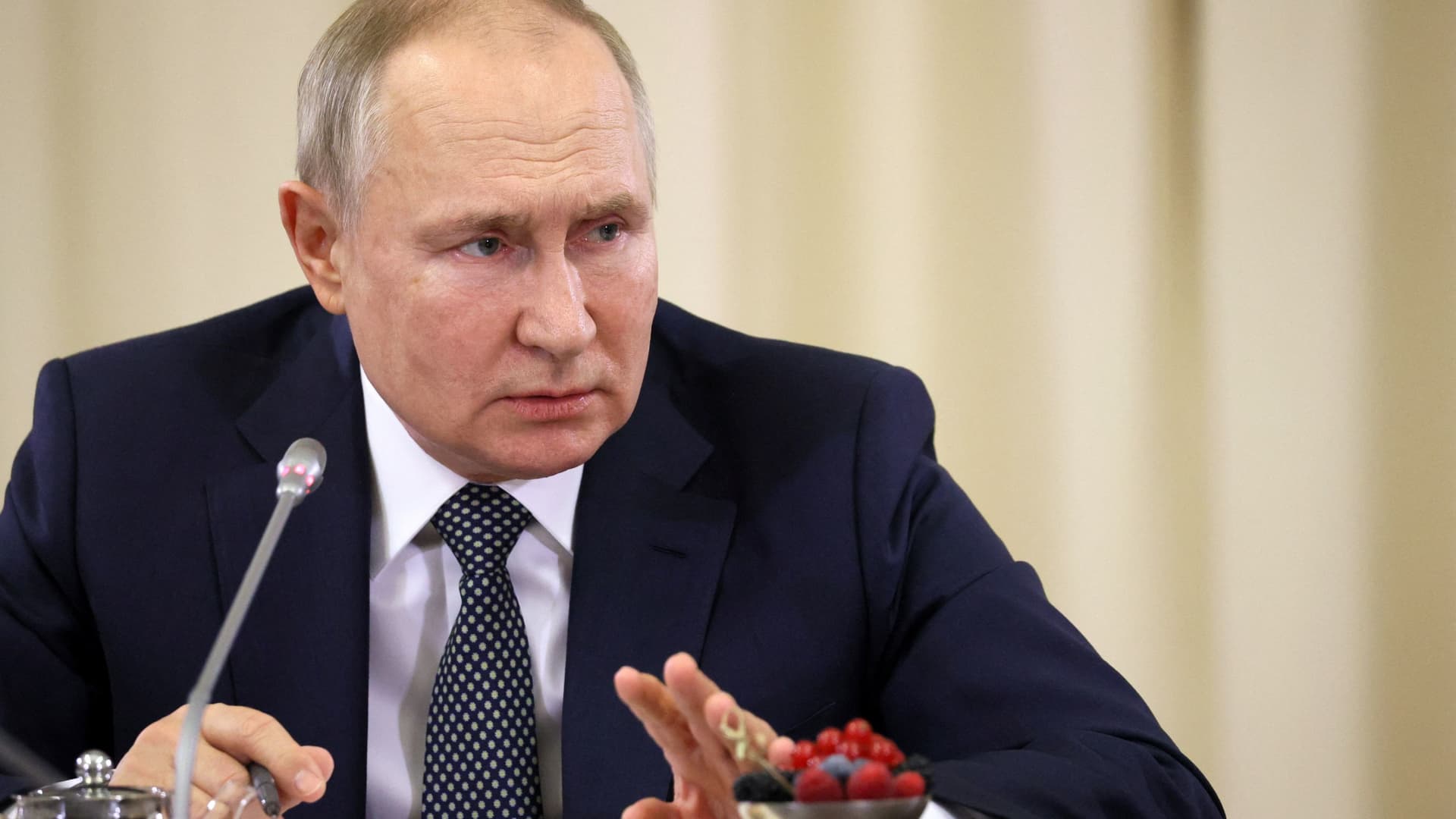
Russian President Vladimir Putin hailed the annexation of Ukrainian territories as a major achievement and said his country's nuclear weapons serve as a tool of deterrence in the war that the Kremlin calls a "special military operation."
Speaking with members of the presidential Human Rights Council, Putin described the land gains as "a significant result for Russia," noting that the "Sea of Azov has become Russia's internal sea." He added that "Peter the Great fought to get access to the Sea of Azov."
Russia seized broad swaths of southern Ukraine in the opening days of its invasion of Ukraine and captured the key Sea of Azov port of Mariupol in May after a nearly three-month siege. In late September, Putin illegally annexed four regions of Ukraine: Kherson and Zaporizhzhia in the south, and Donetsk and Luhansk in the east.
Asked by a member of the Human Rights Council to pledge that Russia would not be the first to use nuclear weapons, Putin demurred, saying Russia would not be able to use nuclear weapons at all if it agreed not to use them first and then came under a nuclear strike.
"If it doesn't use it first under any circumstances, it means that it won't be the second to use it either, because the possibility of using it in case of a nuclear strike on our territory will be sharply limited," Putin said.
— Associated Press
Putin says Russia's war could be a 'lengthy' process, downplays the need to mobilize more troops
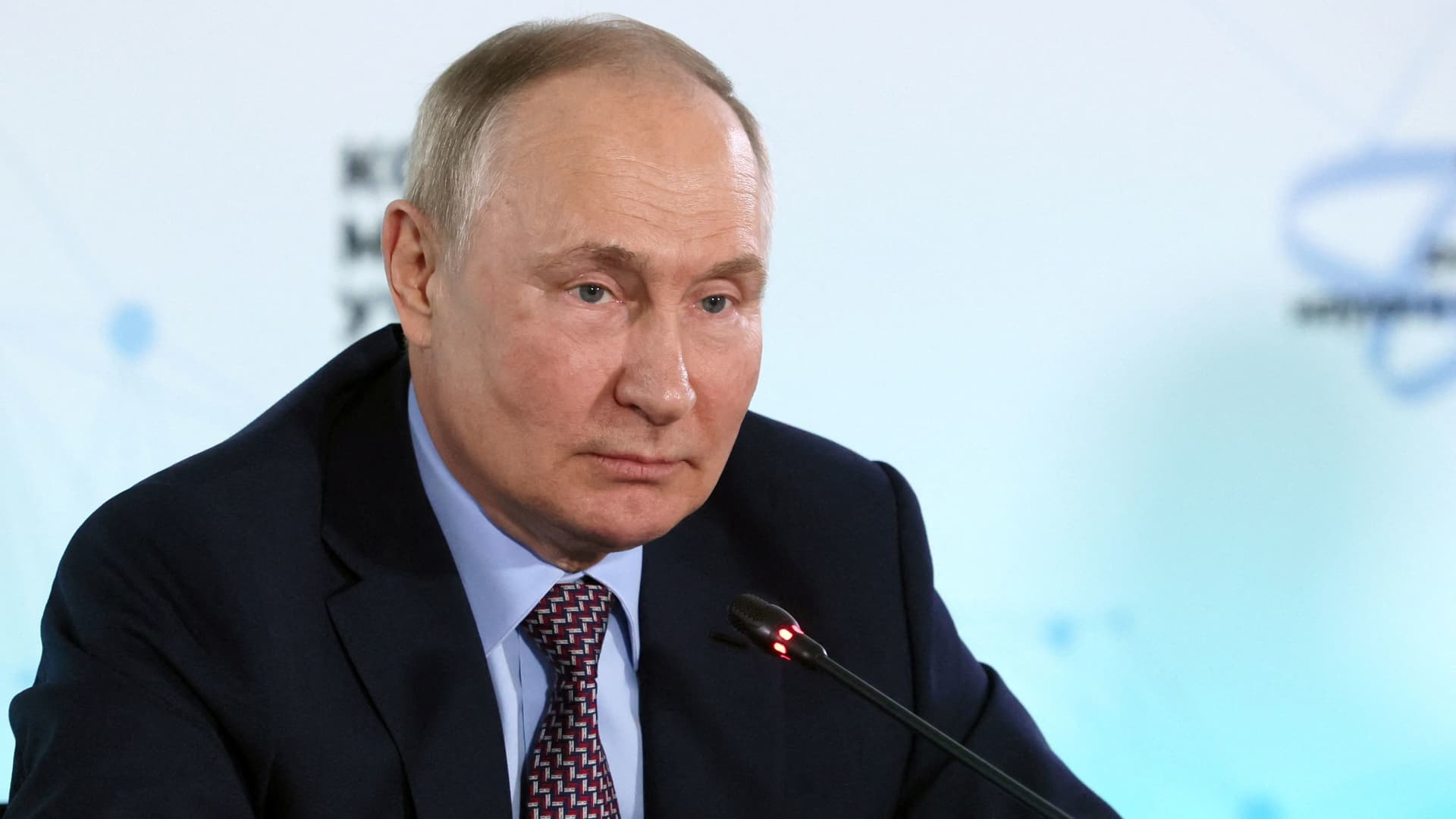
Russian President Vladimir Putin said his invasion of Ukraine could be "lengthy," as the brutal conflict drags into its 10th month.
As Russia struggles to hold ground it gained this year in Ukraine, Putin downplayed the need to mobilize more troops. Considering another round of conscription "simply does not make sense," Putin said, according to an NBC News translation of his remarks at a meeting of his human rights council.
Of the 300,000 reservists called up during Putin's partial mobilization earlier this year, 150,000 are now in Ukraine, the Russian president said.
He added that "there is no mass withdrawal" from Russian positions in Ukraine.
— Jacob Pramuk
President Zelenskyy visits troops on the frontlines of Donetsk
President, Volodymyr Zelenskyy visits Donetsk front, where the most violent clashes in the war with Russia took place in Ukraine.
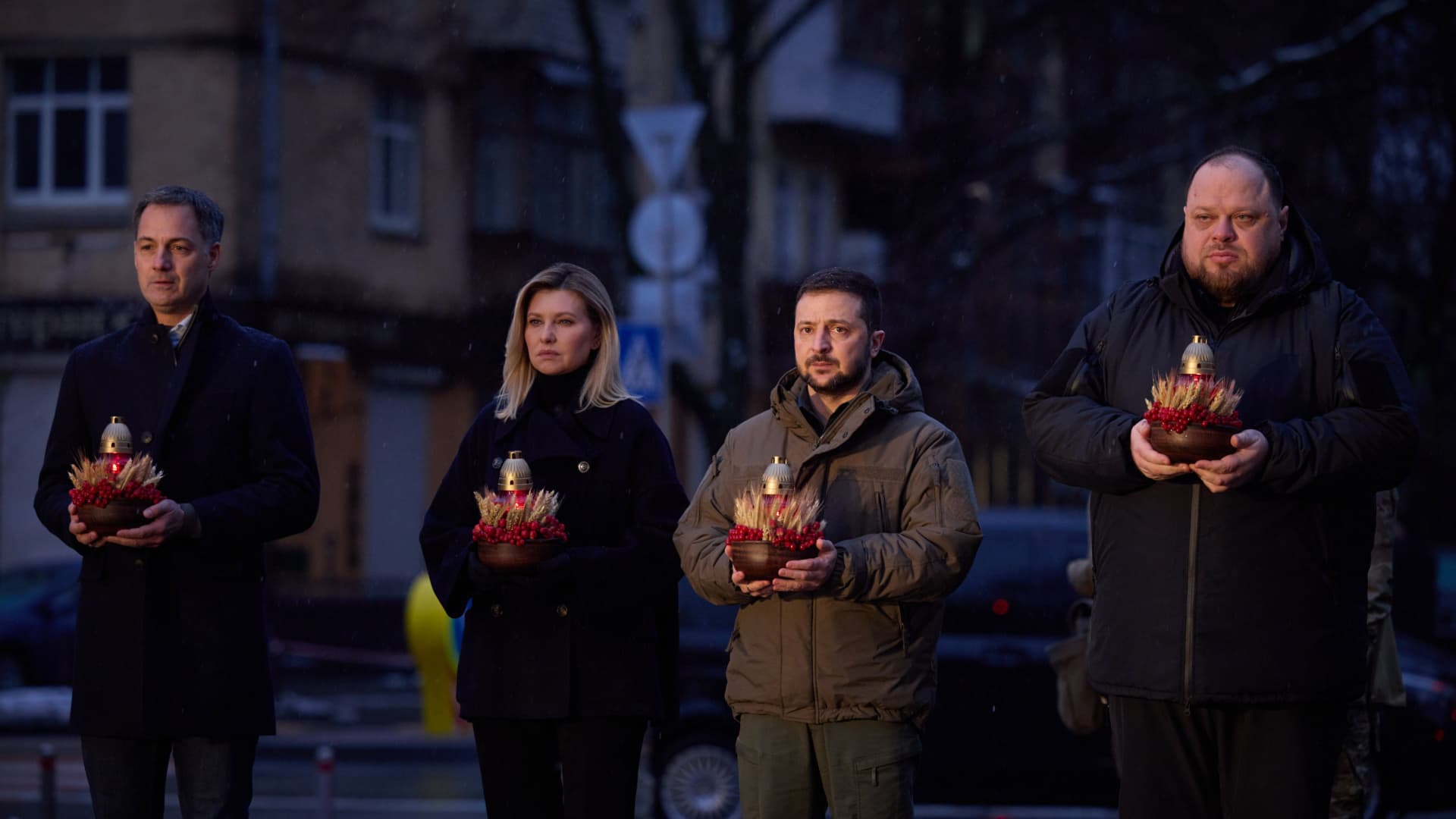
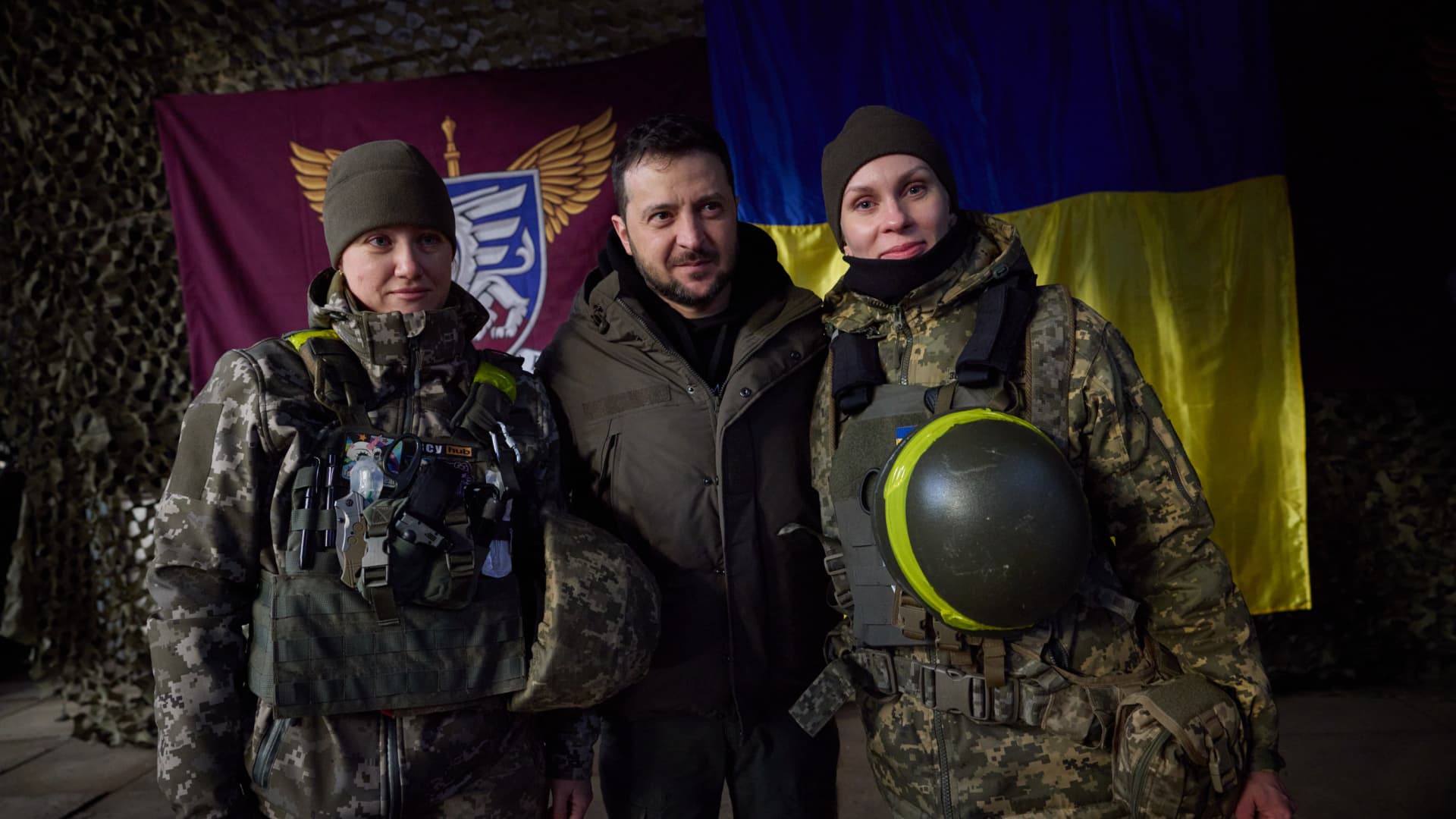
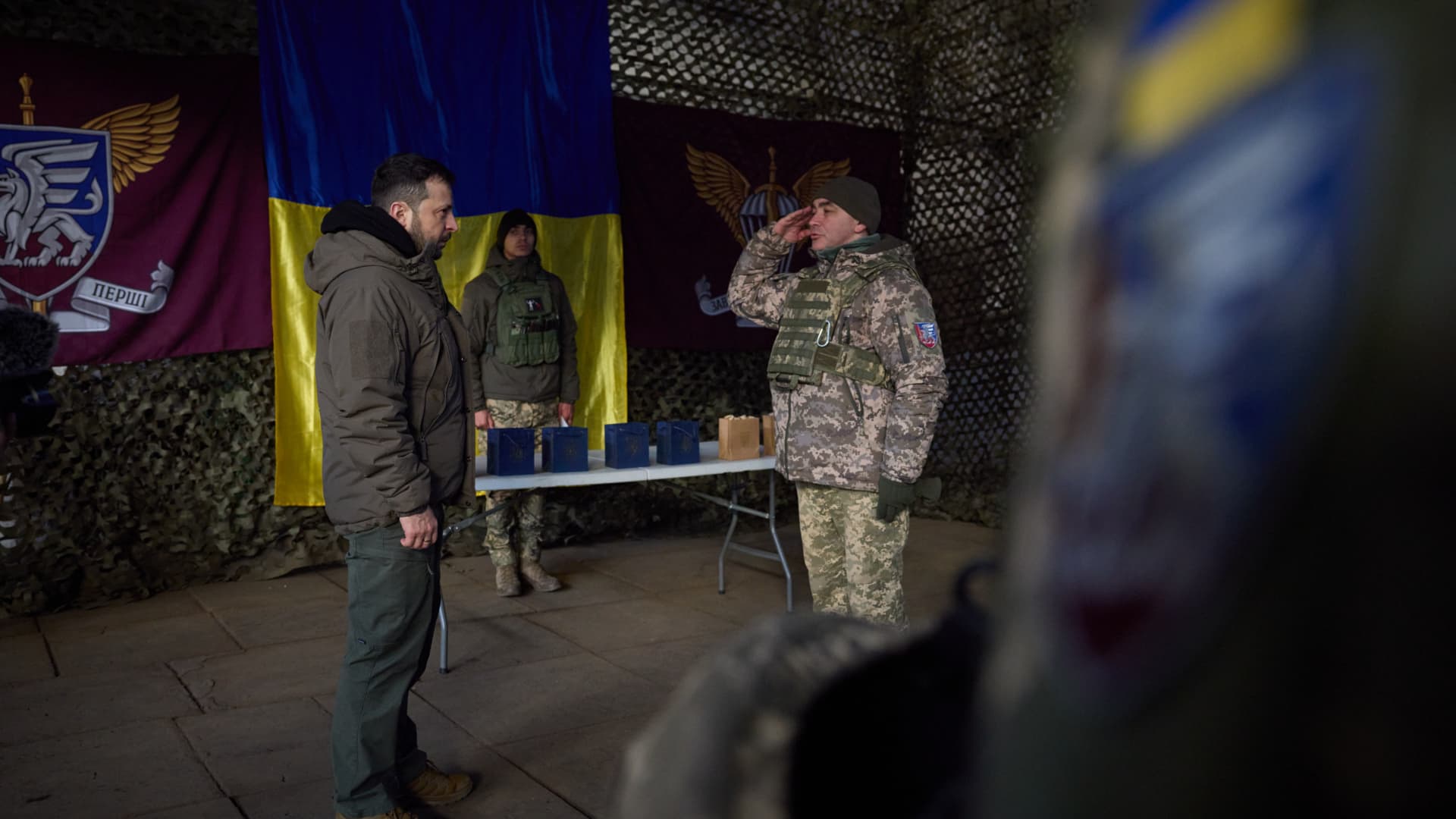
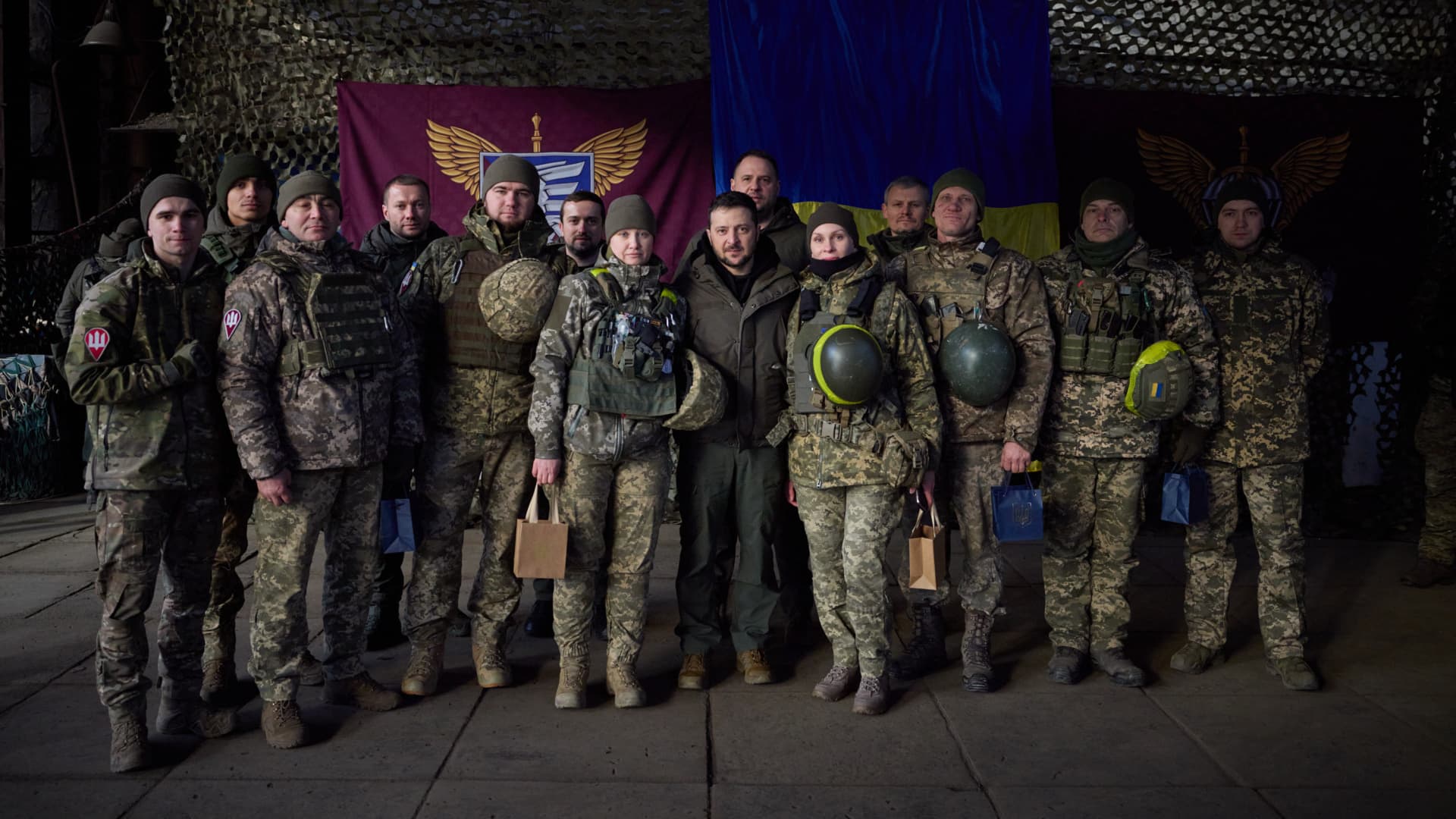
— Ukrainian Presidency | Getty Images
Russia resumes use of Iranian drones — and cold weather has no impact, official says
Russian forces have resumed their use of Iranian drones, a spokesman for Ukraine's Air Force Command said, noting that colder weather did not seem to impede their operation.
"The enemy resumed attacks using Shahed-136/131 kamikaze drones for the first time in three weeks. We see that they were used last night, and the frost does not affect their operation. We must be ready for these challenges too," Yurii Ihnat, spokesman for the Ukrainian Air Force Command, said Wednesday, according to news agency Ukrinform.
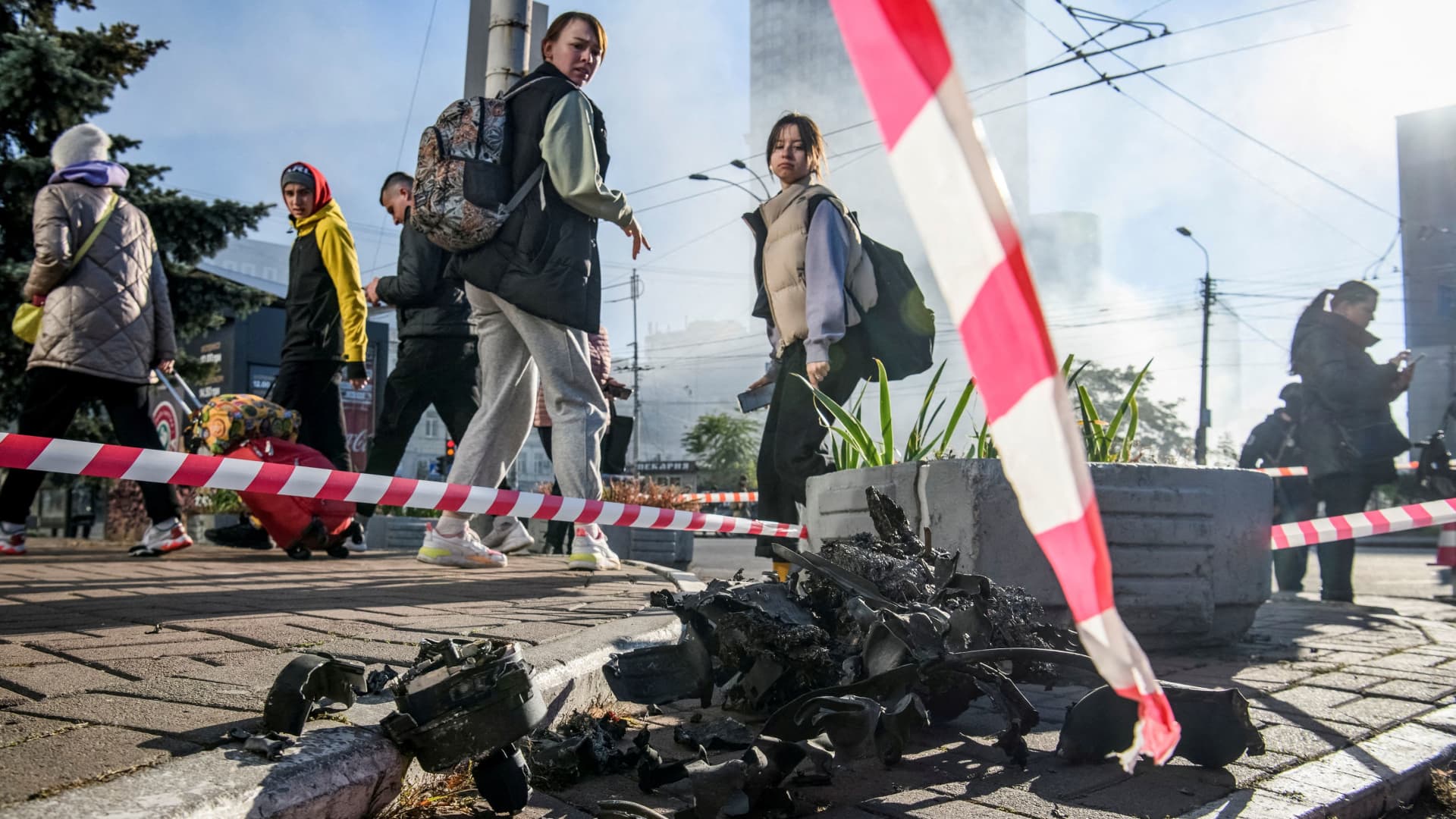
Russia has been tight-lipped about the use of Iranian drones in attacks on Ukraine but the Iranian government has admitted to sending a batch of the unmanned aerial vehicles (UAVs) to Russia. Tehran said it had done so before the war started, however. Drones can be equipped with explosives or be used for reconnaissance and surveillance.
Recent intelligence has been reported suggesting that Iran will help Russia manufacture drones on its own soil.
The General Staff of Ukraine's armed forces said Wednesday that its soldiers had "shot down 14 Shahed-136 assault drones, one BPLA Orlan-10 [a reconnaissance UAV] and 2 more enemy drones, the type of which is being specified" over the past 24 hours.
— Holly Ellyatt
31 suspicious packages sent to diplomats in 15 countries, Ukraine minister says
Ukraine's Foreign Minister Dmytro Kuleba said Wednesday that 31 suspicious packages have been sent to diplomatic buildings in 15 countries over the past week.
"The threats to our diplomats keep coming," Kuleba said on Facebook. "It's been a week since Ukrainian embassies and consulates have been functioning in the mode of enhanced security measures, police borders, visits of canineologists, pyrotechnics and criminalists," he said.
He added that in the last two days, suspicious packages have arrived at embassies in Italy, Poland, Portugal, Romania and Denmark, as well as consulates in Gdansk.
"In total, we already have 31 cases in 15 countries: Austria (1), Vatican (1), Denmark (1), Spain (5), Italy (4), Kazakhstan (1), Netherlands (1), Poland (6), Portugal (2), Romania (2), USA (1), Hungary (2), France (1), Croatia (1), Czech Republic (2)," he wrote.
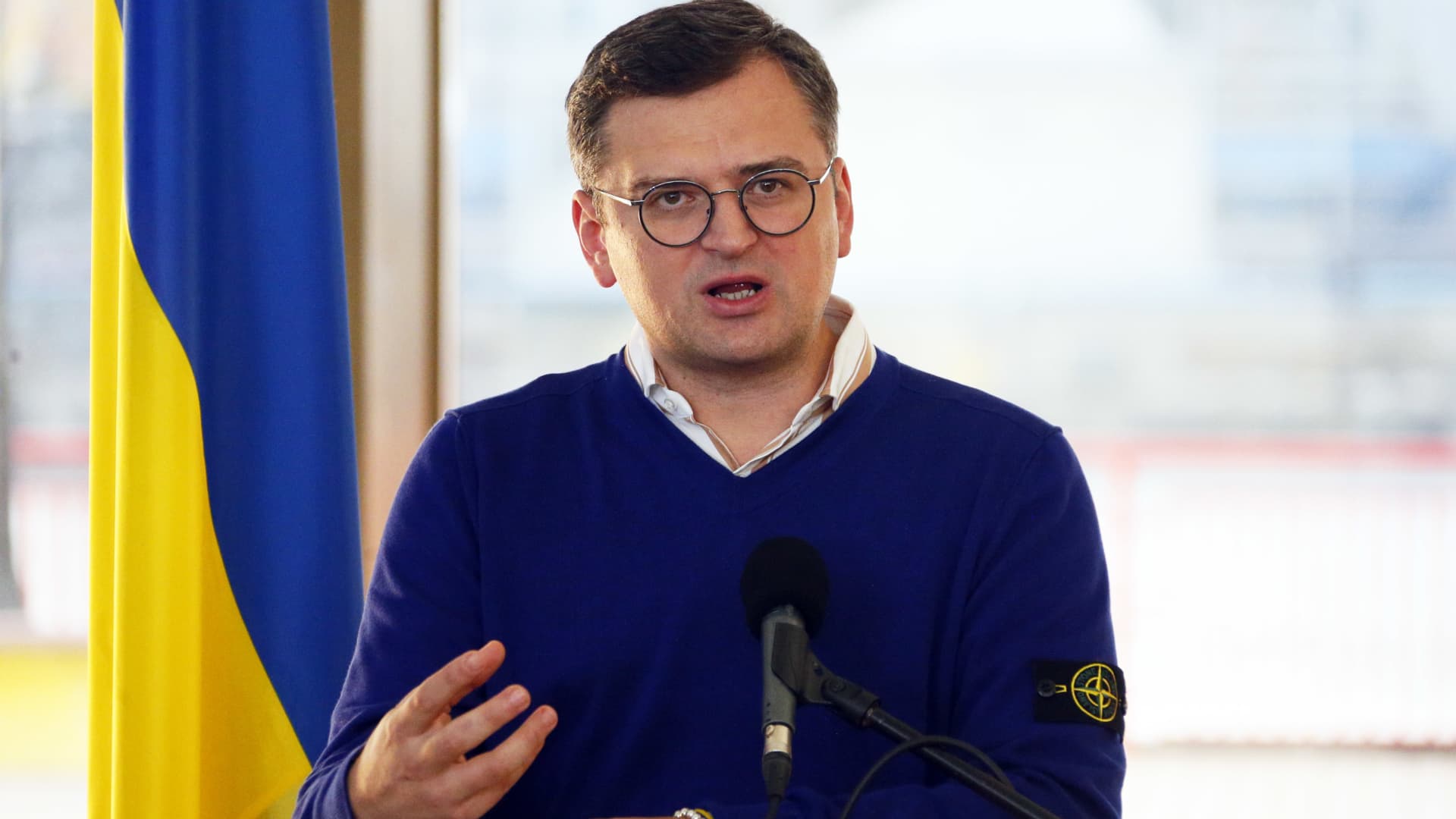
"Usually, the mailings came from post offices that were not equipped with video surveillance systems. The attackers also took measures not to leave traces of their DNA on the packages. This, in particular, indicates the professional level of embodiment of this action," he said.
"The campaign of terror against Ukrainian diplomats, which is currently taking place, is unprecedented on its scale not only in the context of Ukraine, but globally. I don't remember any instance in history that so many embassies and consulates of one country have been subjected to such mass attacks in such a short period of time."
He said Ukrainian diplomats would continue to work and would not be intimidated.
— Holly Ellyatt
Pope compares Ukrainian suffering to WWII Nazi death operation
Pope Francis on Wednesday compared the war in Ukraine to a Nazi operation that killed some two million people, mostly Jews, in the first years of World War Two.
Speaking to Polish pilgrims at his weekly general audience, Francis noted that the Catholic University of Lublin, in Poland, had recently commemorated the anniversary of Operation Reinhard.
It was the code name for a secret operation in a part of occupied Poland which the Germans called the "General Government" area, that included territory now in Ukraine.
"May the memory of this horrible event arouse intentions and actions of peace in everyone," he said, specifically mentioning the operation, saying it was one of "extermination".
He then went off script to add: "And history is repeating itself. We see now what is happening in Ukraine."
Russia calls its invasion of Ukraine a "special military operation" to "de-Nazify" the country and root out nationalists it considers dangerous. Ukraine and its allies accuse Moscow of an unprovoked war to grab territory from its pro-Western neighbour.
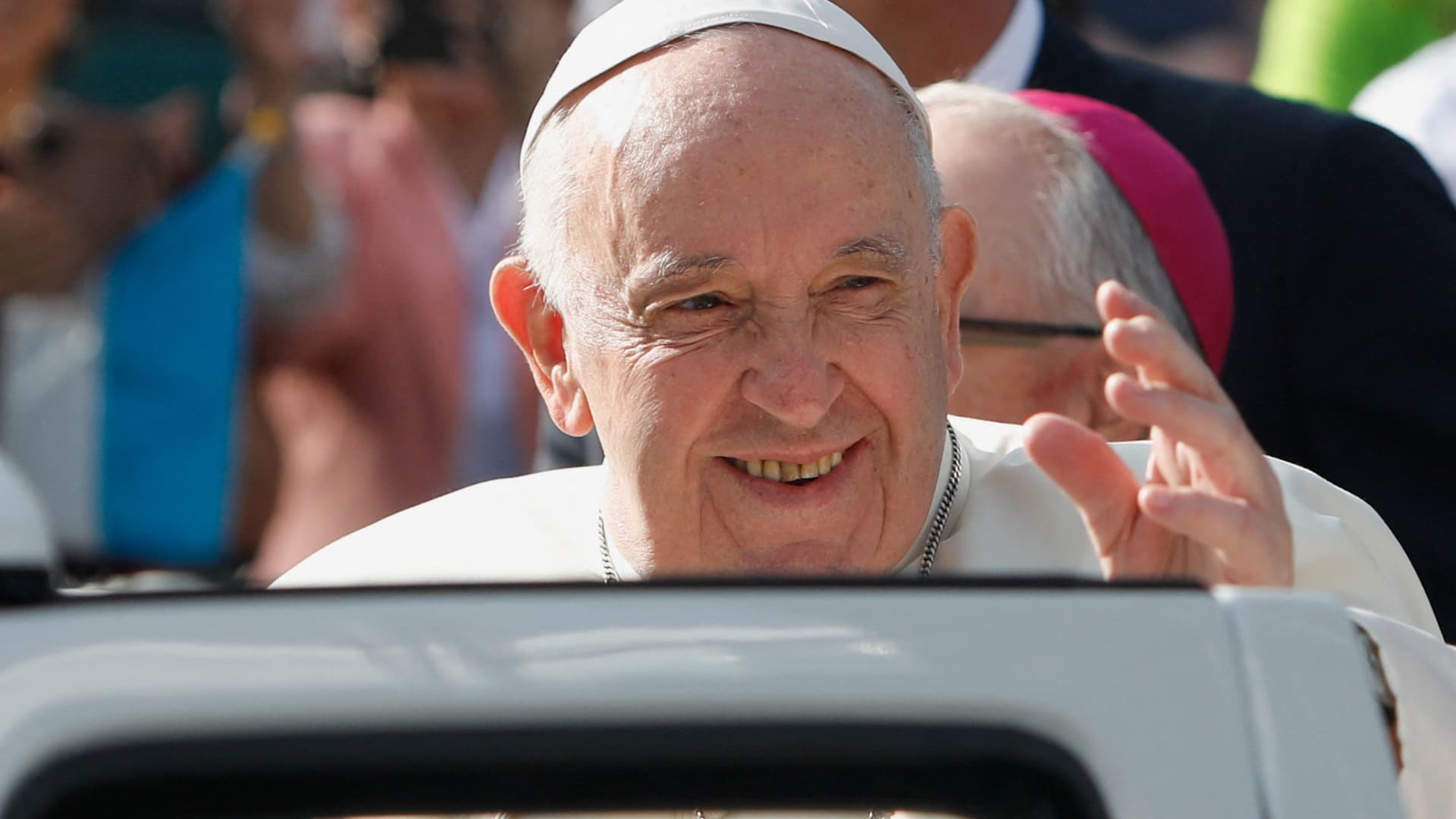
Since the invasion began in February, Francis has been increasingly forceful in his condemnation of Russia's actions. Last month, he said Ukrainians were suffering a "martyrdom of aggression" and compared the effects of the war on Ukrainians to the "terrible genocide" of the 1930s, when Soviet leader Josef Stalin inflicted famine on the country.
Francis has several times offered the Vatican's mediation to resolve the conflict but his increased criticism of Russia has made this highly unlikely. In an interview last month with the Jesuit magazine America, Francis spoke of what he called the cruelty of Russian forces in Ukraine.
"Generally, the cruellest are perhaps those who are of Russia but are not of the Russian tradition, such as the Chechens, the Buryati and so on. Certainly, the one who invades is the Russian state. This is very clear," said Francis.
Russian Foreign Minister Sergei Lavrov called the comments "un-Christian" and incomprehensible.
— Reuters
Kremlin says U.S. defence budget 'confrontational' towards Russia
The Kremlin on Wednesday said that a U.S. military aid spending bill providing $800 million to Ukraine approved by U.S. lawmakers on Tuesday was "confrontational" towards Russia.
In a call with reporters, Kremlin spokesman Dmitry Peskov said: "The document that has been adopted is of an extremely confrontational nature in relation to our country."
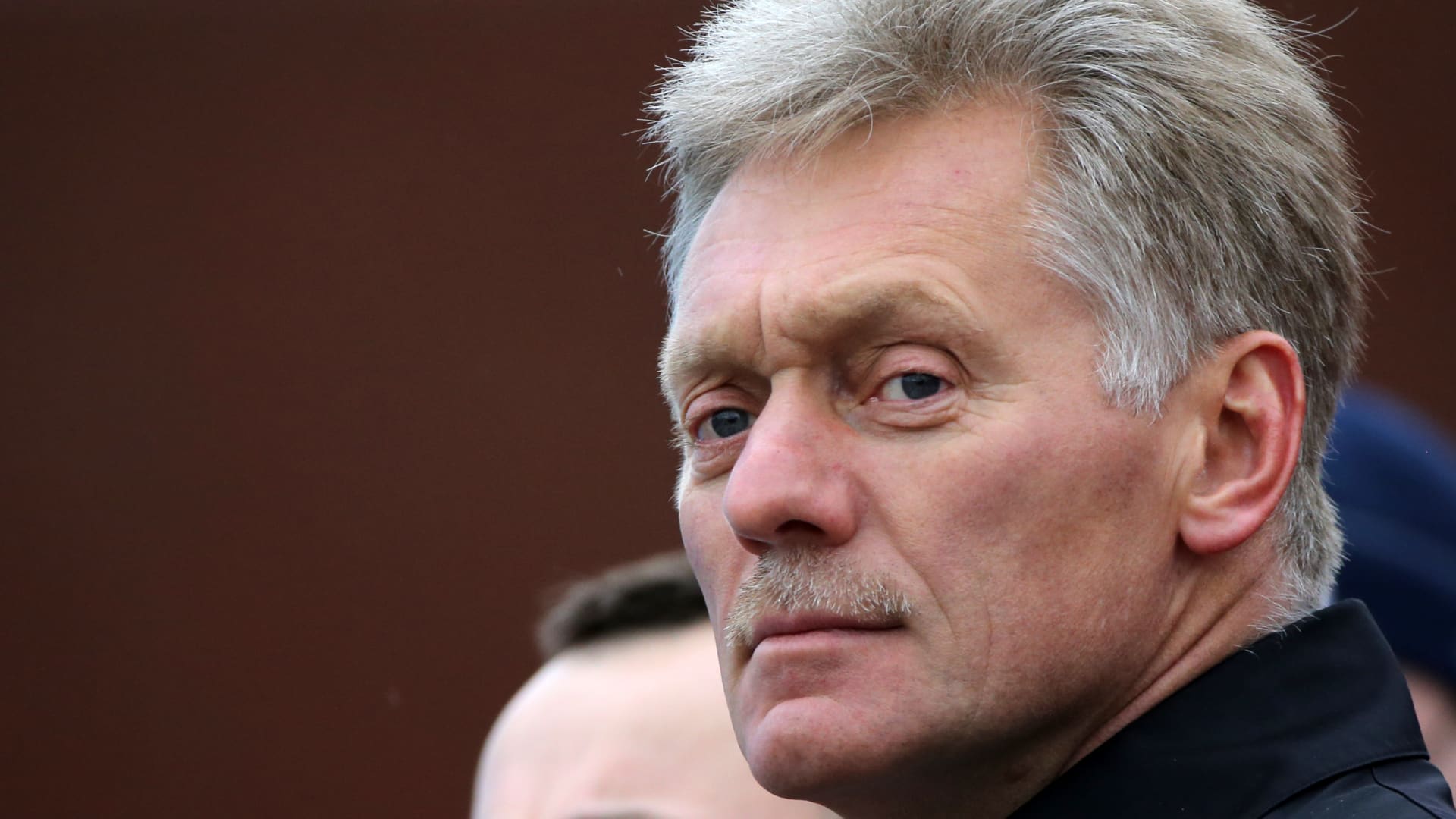
The Fiscal 2023 National Defense Authorization Act, or NDAA, authorizes the additional spending for the Ukraine Security Assistance Initiative, an increase of $500 million over U.S. President Joe Biden's request earlier this year.
The bill also suspends some restrictions on contracts for munitions to support Ukraine.
It is expected to pass the Senate and House of Representatives this month, and be sent to the White House for Biden to sign into law.
— Reuters
Southern and eastern Ukraine bear the brunt of Russian attacks, officials say
The southern and eastern regions of Ukraine continue to bear the brunt of Russian missile attacks with strikes continuing overnight and into Wednesday, regional officials said.
Yaroslav Yanushevych, the head of the Kherson Regional Military Administration, said that the southern region had been shelled 51 times over the past 24 hours, with two civilians killed during the strikes and another injured.
"Russian occupiers shelled the territory of Kherson region 51 times," Yanushevych said on Telegram, adding that Russia had employed "artillery, MLRS (multiple launch rocket systems), tanks and mortars" to do so. "Civilian infrastructure objects" and residential buildings were damaged during the shelling, he said.
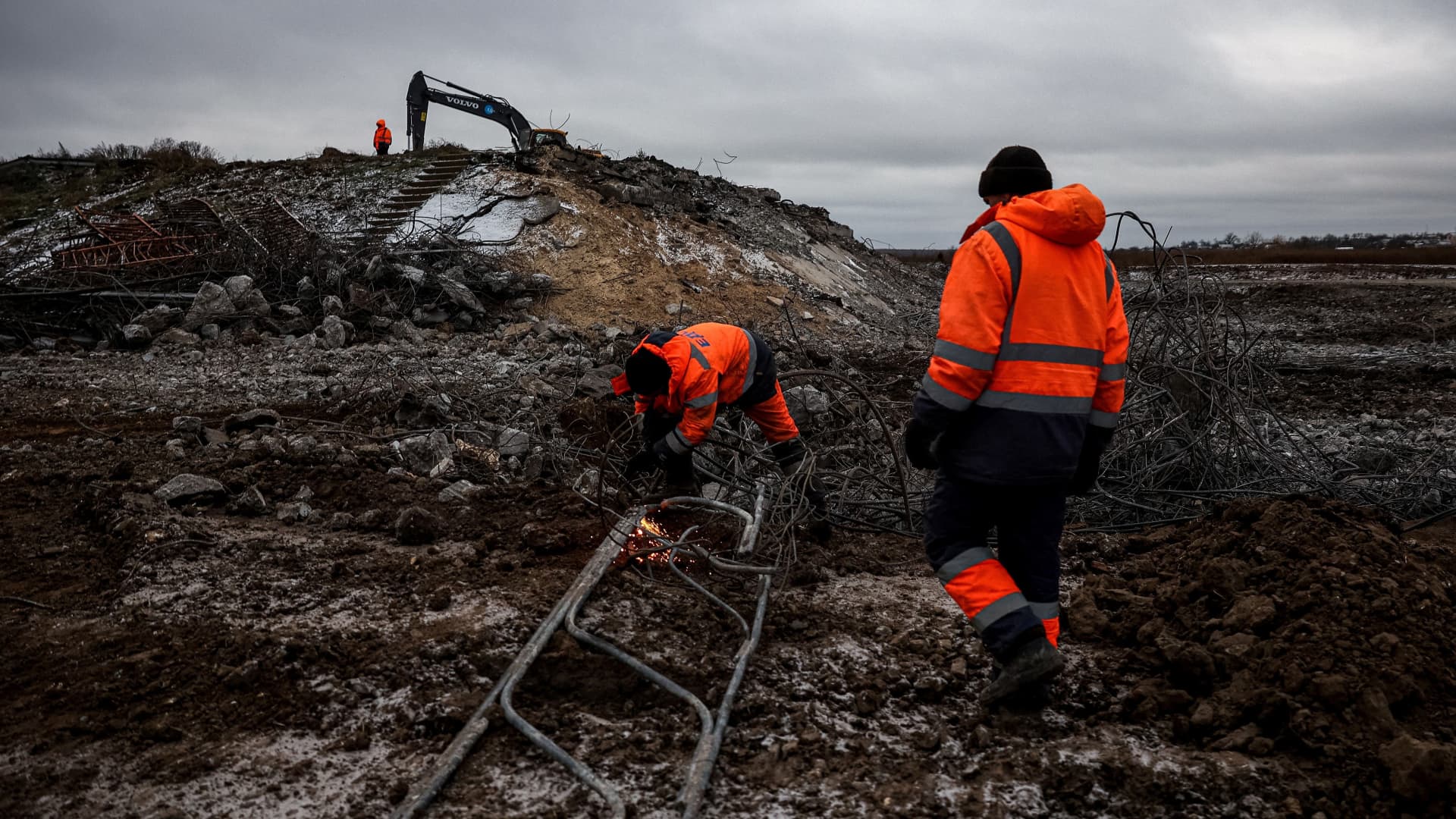
The southeastern region Zaporizhzhia has also experienced continued assaults into Wednesday, according to Oleksandr Starukh, the head of the Zaporizhzhia Regional Military Administration (RMA). He said on Telegram that two communities in the Zaporizhzhia district had been targeted with explosive-carrying drones and S-300 missiles.
"In one of the villages, two houses were destroyed and eight more were damaged. According to preliminary data, three people, including a 15-year-old girl, were injured," Starukh said on Telegram.
The Dnipropetrovsk region toward eastern Ukraine was also shelled overnight with Valentyn Reznichenko, the head of the regional RMA, stating that Nikopol city was particularly badly hit.
"Nikopol suffered the most. Up to a dozen private houses, farm buildings and gas pipelines were damaged in the city," he said on Telegram, adding that several shops, office buildings and a college had been "mutilated by Russian shells."
CNBC was unable to immediately verify the information contained within the reports.
— Holly Ellyatt
Russia beefing up defenses in Belgorod needlessly, UK says
The U.K.'s Ministry of Defence said Russia's decision to extend defensive positions along its international border with Ukraine, and deep inside the border region of Belgorod, reflects a misplaced belief that Ukraine could try to invade Russia.
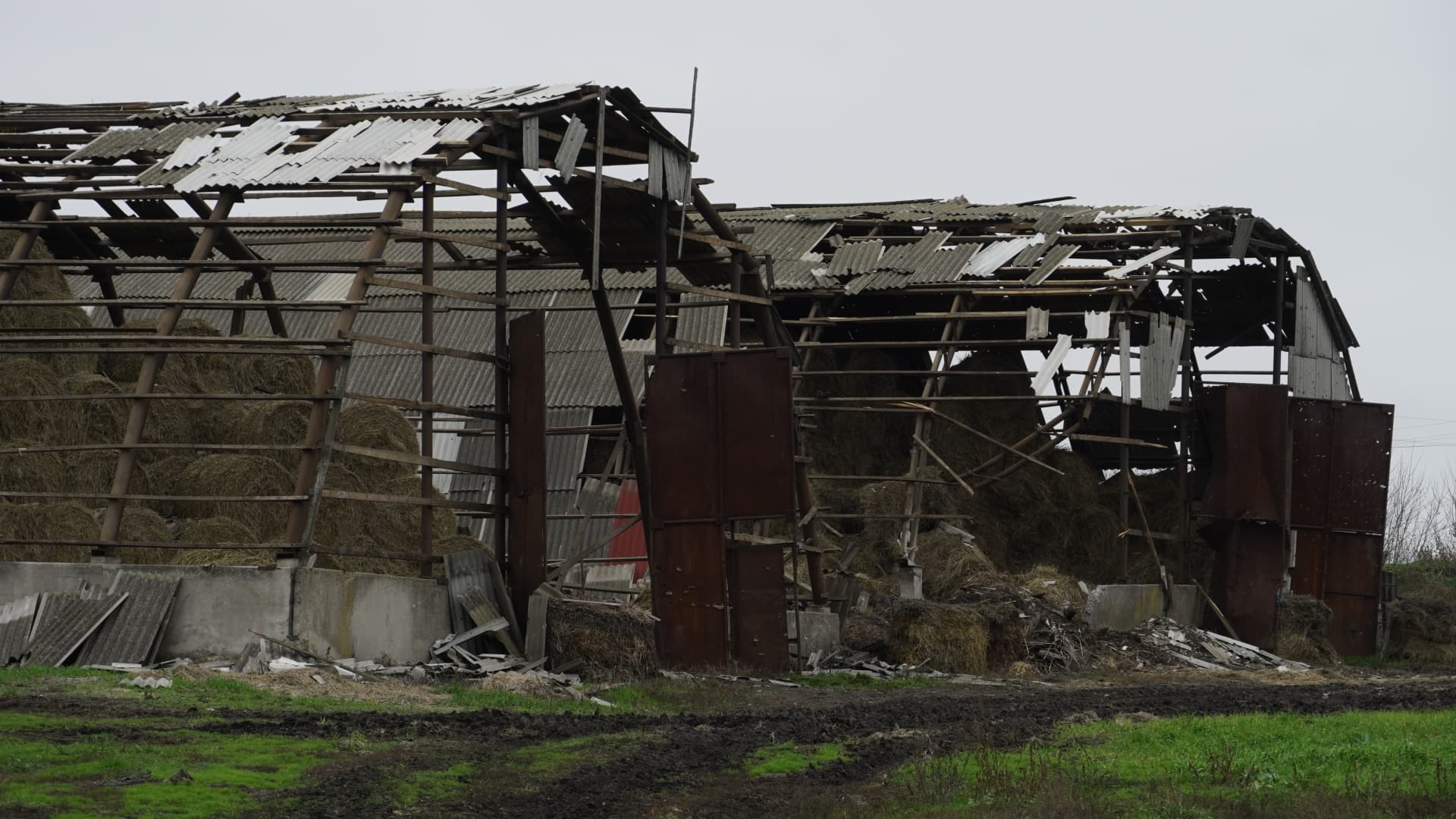
The U.K. said in its latest intelligence update that the recent beefing up of defenses in Belgorod could be due to Russian authorities wanting to promote a baseless idea that Ukraine could invade.
"There is a realistic possibility that the Russian authorities are promoting defensive preparations within internationally recognised Russian territory to burnish patriotic feeling. However, it probably illustrates some Russia decision-makers' genuine (but false) belief that there is a credible threat of invasion by Ukrainian forces," the U.K. said.
"Paucity in strategic assessment is one of the critical weaknesses in the central Russian government architecture: as highlighted by Russia's original decision to invade Ukraine," it noted, adding: "Impartial official analysis is almost certainly frequently undermined by a tendency toward group-think and politically expedient conclusions."
In its latest intelligence update, the ministry noted that trench digging has been reported in Belgorod since at least April, "but the new constructions are probably more elaborate systems, designed to rebuff mechanised assault." In addition, the governor of Belgorod announced Tuesday that he was establishing local "self-defence units."
Russia has accused Ukrainian forces of shelling Belgorod and other border regions repeatedly during the war, killing a number of civilians in the process. Ukraine has not claimed responsibility for any incidents within Russian territory, and at one point accused Russia of staging an attack to whip up anti-Ukrainian sentiment.
— Holly Ellyatt
Belarus to move military equipment, personnel to check for 'terrorism' response
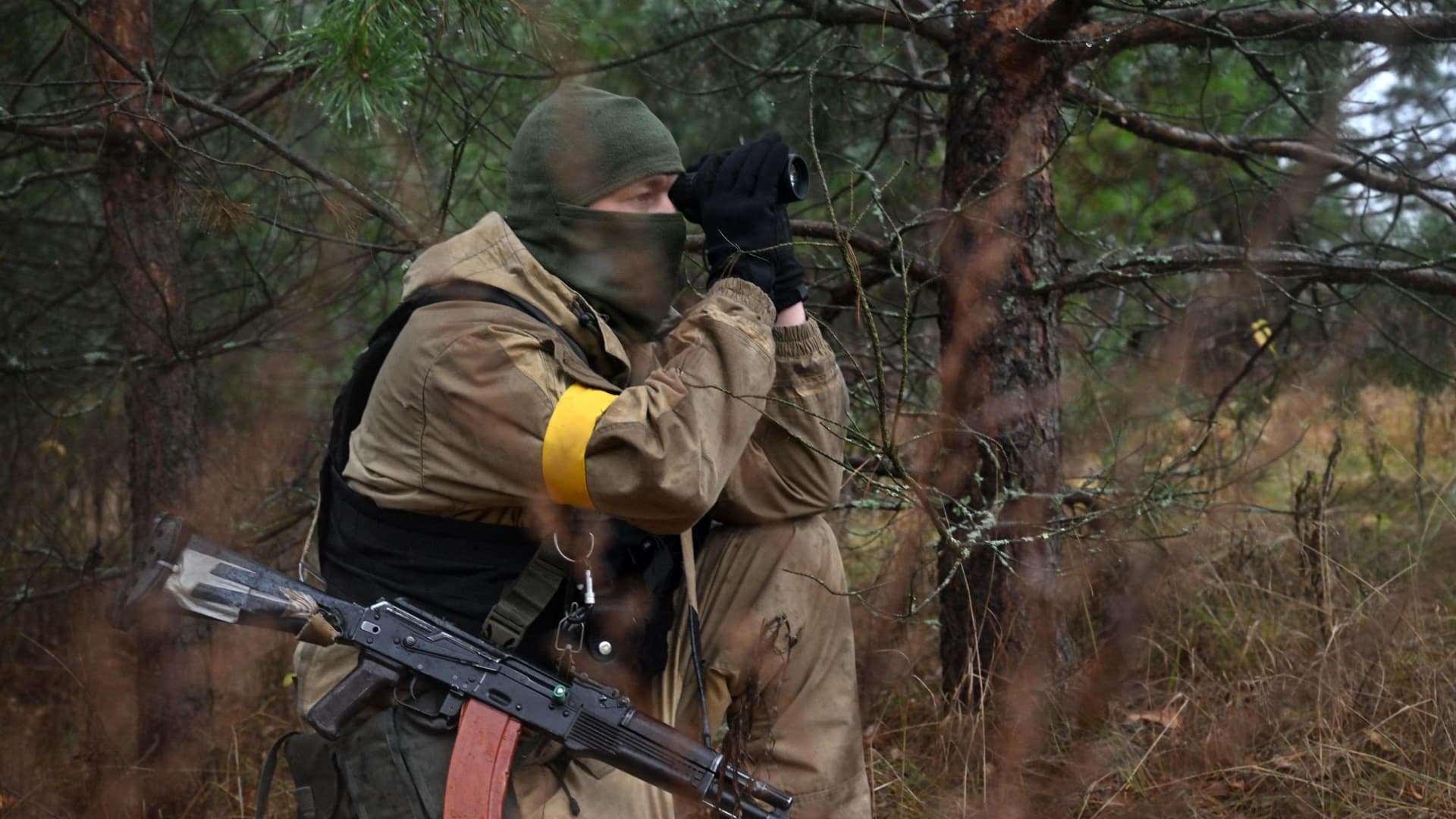
Belarus is moving military equipment and its security forces on Wednesday and Thursday to check its response to possible "acts of terrorism."
State news agency BelTA cited the country's Security Council stating that during the checks it would temporarily restrict citizens' movement on certain public roads, and said the use of imitation weapons for training purposes is planned.
Any military activity by Belarus is being watched closely in Ukraine for signs that its forces could enter the war and assist its ally Russia. Belarus has appeared reluctant to fight alongside Russia in Ukraine but it conducts joint military exercises with Russia and has a joint unit with its neighbor.
— Holly Ellyatt
Pro-Russian official claims conditions are ripe for the capturing of Bakhmut
Pro-Russian official Denis Pushilin, the acting head of the separatist "Donetsk People's Republic" in eastern Ukraine, has claimed that Russian forces in the region — arguably the most hotly-contested region in the Ukraine war at the moment — could soon be in a position to advance and capture Bakhmut.
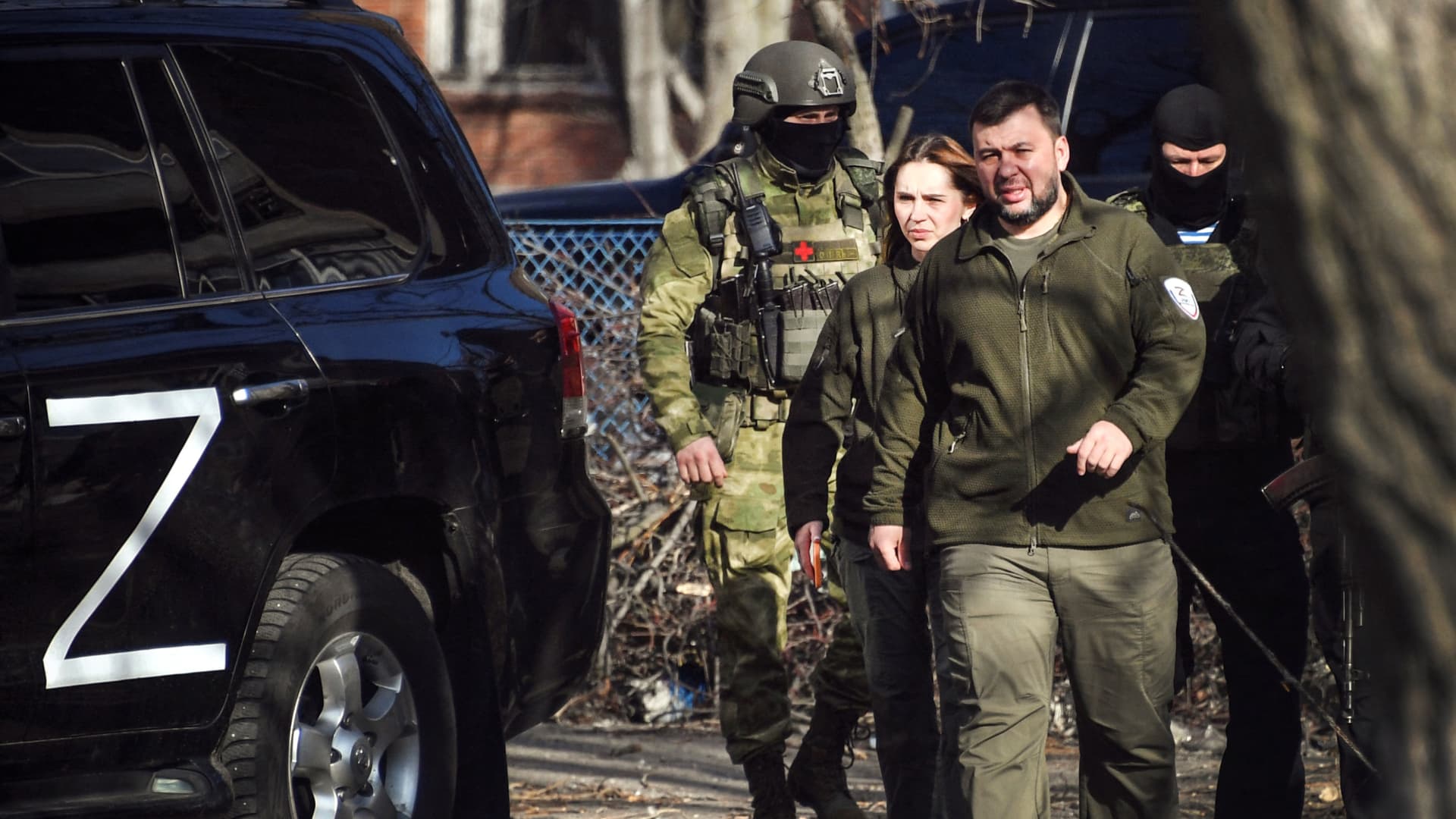
Pushilin told the TASS news agency that the "liberation" of Mayorsk near Horlivka, just to the south of Bakhmut, "created the prerequisites for advancing to Dzerzhinsk [known as 'Toretsk' in Ukrainian] and the subsequent encirclement of Artemovsk" — the Russian name for Bakhmut.
He said units of the Russian state-sanctioned private military company, the Wagner Group, were working "in Bakhmut" and were seeing "certain successes," echoing comments by Russian Defense Minister Sergei Shoigu who said on Tuesday that a number of settlements near Bakhmut had come under the control of the Russian armed forces.
Fighting in Donetsk has descended into bloody trench warfare in recent months with fierce battles over every mile of territory and settlement surrounding Bakhmut.
Russia is believed to see the city as a key target, believing that capturing it will enable it to sever Ukrainian supply lines and allow its forces to advance toward Sloviansk and Kramatorsk to the north of Bakhmut.
CNBC was unable to verify Pushilin's claims. The General Staff of Ukraine's armed forces said Wednesday morning that Russian forces continued to focus their efforts on "conducting offensive operations" in the area around Bakhmut.
It's not the first time that Pushilin has claimed that Bakhmut is close to encirclement, having said the same thing last week. Ukraine vehemently denies it is even close to being semi-encircled, with one official telling CNBC that Russia is seeing masses of personnel losses in the area, and little gains, although the official admitted the fighting was intense.
— Holly Ellyatt
Blinken says U.S. neither encourages nor enables Ukraine to strike inside Russia
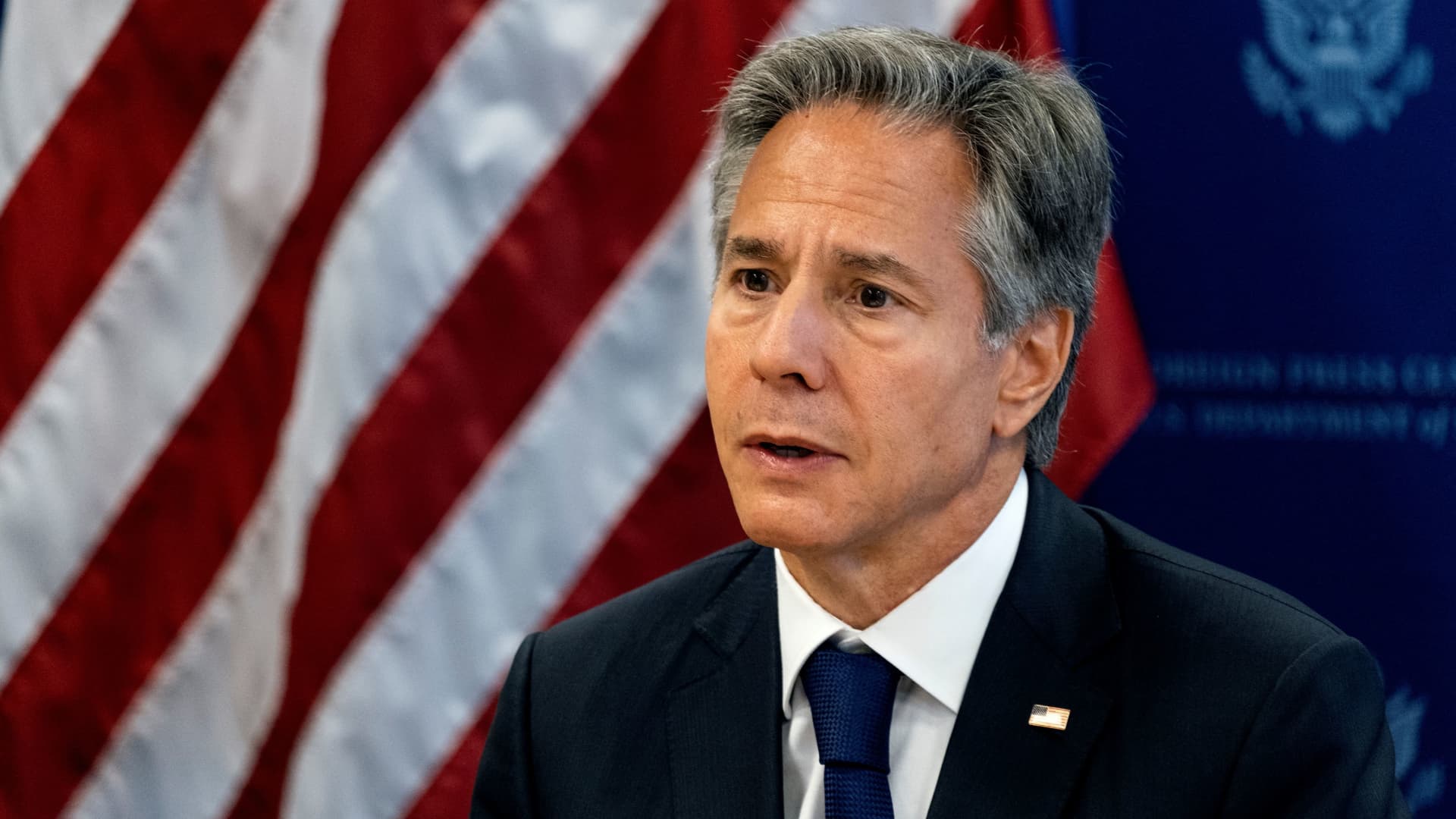
The United States has neither encouraged nor enabled the Ukrainians to strike inside of Russia, U.S. Secretary of State Antony Blinken said, but repeated Washington's determination to make sure Kyiv has the equipment it needs to defend itself.
A third Russian airfield was ablaze from a drone strike, a day after Ukraine demonstrated an apparent new ability to penetrate hundreds of miles (km) deep into Russian airspace with attacks on two Russian air bases. Kyiv did not directly claim responsibility for the strikes, but nonetheless celebrated them.
— Reuters
At U.N., U.S., Russia accuse each other of no interest in Ukraine talks
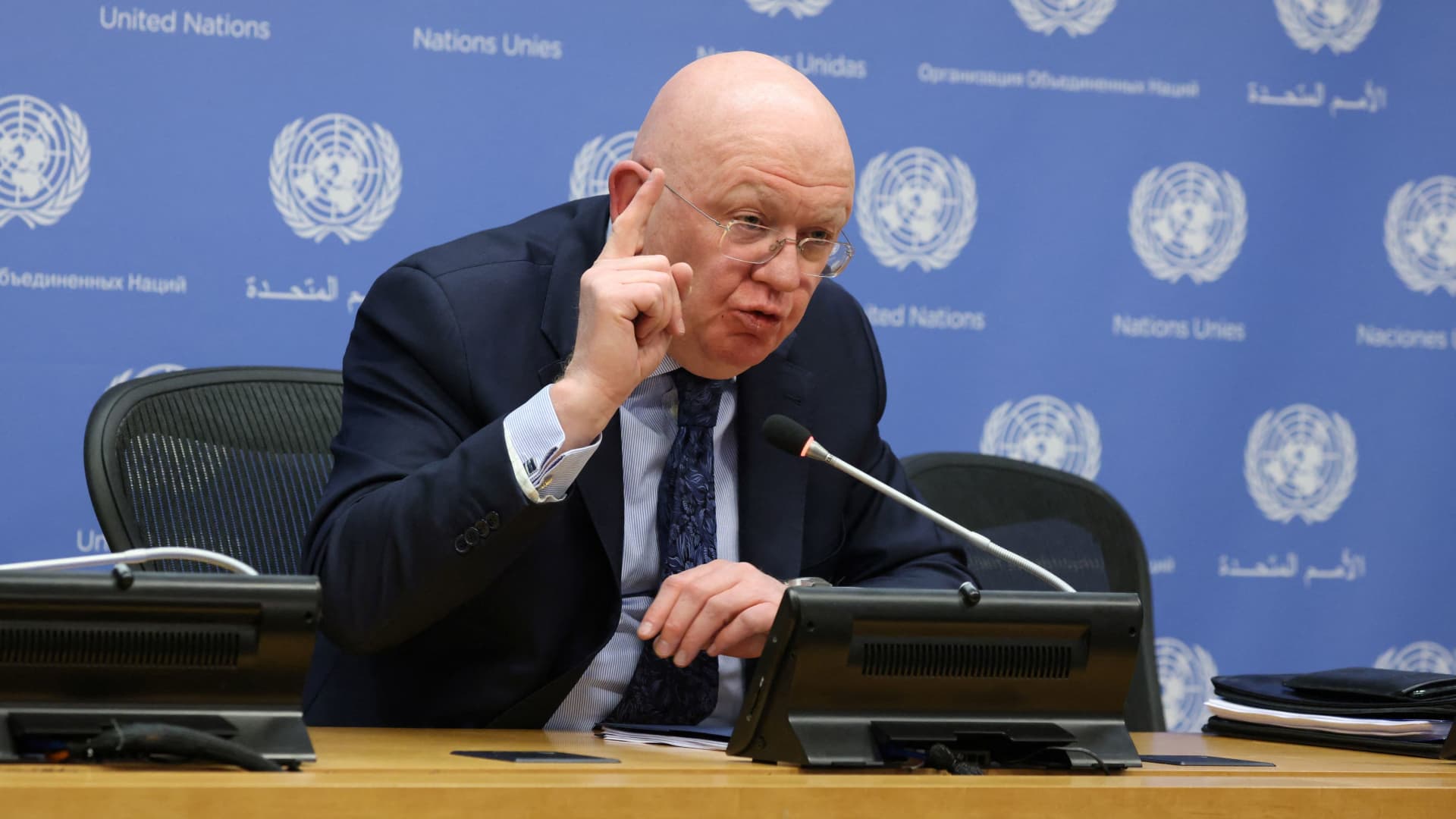
The United States and Russia accused each other of not being interested in Ukraine peace talks as calls grow at the United Nations for a ceasefire and diplomacy to end the war started by Moscow's invasion nine months ago.
Russia's U.N. Ambassador Vassily Nebenzia told a U.N. Security Council meeting on the humanitarian situation in Ukraine that Moscow had noted "interest from a significant majority" of U.N. member states in a diplomatic settlement.
"We are reacting to this very seriously. We confirm our willingness to conduct negotiations," he said, but added that the aim would be to "eradicate the root causes that forced us to start our special military operation (SMO)."
— Reuters
Turkey says Finland must end arms embargo to join NATO
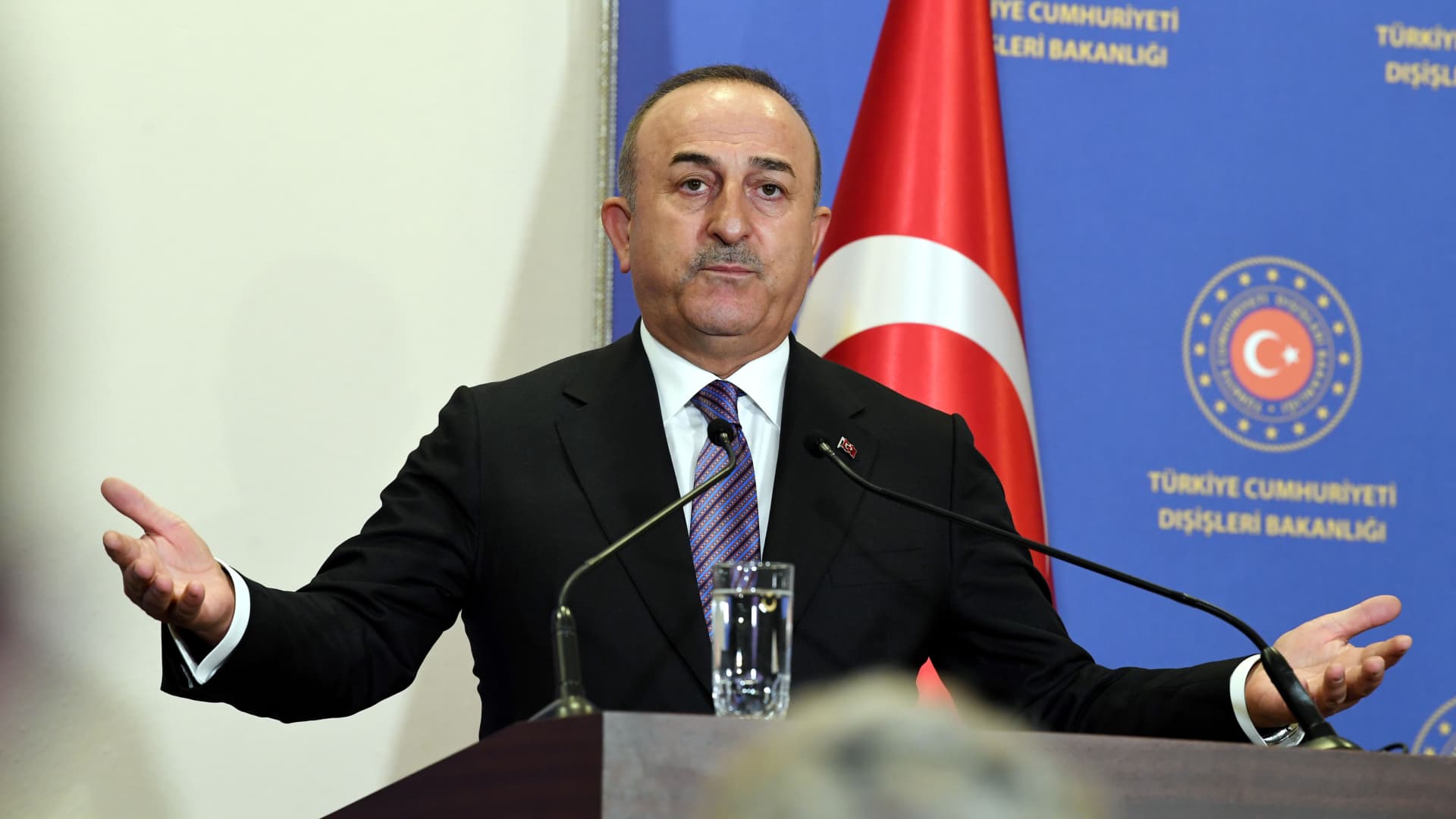
Finland must publicly declare that it's lifting an arms embargo on Turkey to win Ankara's approval for its membership to NATO, the Turkish foreign minister said.
Mevlut Cavusoglu made the comments ahead of visit by Finland's Defense Minister Antti Kaikkonen, who will be discussing his nation's bid to join the military alliance with his Turkish counterpart Hulusi Akar on Thursday.
"The Finnish defense minister's visit to Turkey is important because we have not yet heard a statement from Finland saying they've lifted their arms embargo against us," Cavusoglu told reporters. "We're expecting such a statement from there."
Sweden and Finland abandoned their longstanding policies of military nonalignment and applied for membership in the alliance after Russian forces invaded Ukraine in February, amid concerns that Russia might target them next.
— Associated Press
Hungary vetoes 18 billion euro EU aid package for Ukraine
Hungary vetoed an 18 billion euro ($18.9 billion) EU aid package for Ukraine, meaning it cannot go forward and the European Commission will have to find other ways to continue providing aid to Ukraine into 2023.
"Orban is going into full escalation," a Green Party member of the European Parliament tweeted in response to the news.
The move is seen as a way for Hungarian President Viktor Orban, a longtime ally of Putin, to force the EU into giving Hungary its share of recovery funds, some of which have been blocked by the EU because of breaches of the bloc's laws.
The European Commission will now examine ways to "provide the necessary solution to Ukraine already as of January," EU budget commissioner Johannes Hahn said.
Czech Finance Minister Zbynek Stanjura said he asked his EU colleagues to work toward "a solution supported by 26 member states" that could bypass Hungary's veto.
"We were not able to adopt the package as a whole but we will not be discouraged," Stanjura said. "Our ambition remains that we will start disbursements to Ukraine in January."
— Natasha Turak
Kremlin says no prospect for peace talks with Ukraine at the moment
Moscow says it agrees with the U.S. in that lasting peace is needed in Ukraine, but that it sees no prospect for talks in that direction at the present time.
"That the outcome should be a just and durable peace, one can agree with this," Kremlin spokesman Dmitry Peskov told press, in reference to remarks U.S. Secretary of State Antony Blinken made on Monday. Blinken said that the Ukraine war "would end almost certainly with diplomacy" and that a "just and durable peace" was essential.
"But as for the prospects for some sort of negotiations, we do not see any at the moment," Peskov said.
He added that for talks to take place, Russia would need to have completed the objectives of its "special military operation," the term the Kremlin has used since February to describe its full-scale invasion of Ukraine.
— Natasha Turak



